
How to fill out the Cuba D’Viajeros Travel Form

Getting ready to travel to Cuba? Make sure you follow our steps to complete the D’Viajeros travel form before you travel. The form must be completed and shown at the airport before and after travelling to the island and requires passengers to input data such as their passport information, travel plans, and customs declarations.
Filling D’Viajeros form is mandatory for each passenger, and although it can be a bit confusing, we’re hoping our easy guide will help you fill it in without issues!
Step 1: Go to this site https://dviajeros.mitrans.gob.cu/inicio
You can only fill in this form 48hrs prior to departure so don’t even try beforehand!
The first screen you’ll see looks like this:

Step 2: Select your language
If you don’t speak Spanish then click Top Right Hand ‘Lenguaje’ tab for the dropdown language menu and choose Ingles/ English which will instantly translate the page for you!
Step 3: Click on ‘Form Request’ to start the process
A form will appear on the page.
Step 4: Fill in your personal data
Please note mandatory fields in RED. When you’ve done this, click the button that says ‘NEXT’.

Step 5: Migratory information
Fill in ‘Flight information’ and ‘Arrival Airport’. If you’re arriving in Havana, it’s Aeropuerto Internacional Jose Marti (HAV)
Step 6: Sanitary Information
Fill in information ‘Sanitary Information’ including ‘Vaccination information’. If you haven’t been vaccinated you should have a negative PCR test (although currently not mandatory for entry to Cuba. Please refer to UK GOV’s Cuba entry requirements here )
Step 7: Select your vaccination type from the drop-down menu

Step 8: Choose where you’re going
Make it easy for yourself and just select La Habana 🙂 When it comes to Municipalities , choose Habana Vieja or Plaza de la Revolucion for accommodation in the Vedado area.

Step 9: Choose where you’re staying
- If you’re staying in a Casa Particular choose House or room for rent and add the name and address we have given you for your first night’s stay.
- If you’re staying in a Hotel choose Hotel , then select a hotel from the drop-down menu
Step 10: Customs Information
There is no requirement to declare what you are bringing unless you are bringing more than $5,000 in cash or miscellaneous non-personal items worth more than $1,000.
Please make sure you tick the boxes asking whether you have any unaccompanied baggage AND if you have anything to declare to Customs.
Step 11: Sworn declaration
Nothing confusing here….
Step 12: The PDF
Make sure you view PDF and print it or save it.
With other QR codes, you get sent a copy via email, but NOT so with Cuba! This is why it’s critical that you’ve saved a copy. I print a version AND put a copy in my phone wallet just in case….
…and that’s it! You’re one step closer to your dream Cuban adventure!

Need help planning your Cuba holiday?
With over 20 years of experience organising sustainable tours in Cuba, at Cubania we have your back. From Cuba cycling tours to family or LGBTQI-friendly Cuba tours, we’ve got something for everyone!
Share on social media
Latest stories from cuba.
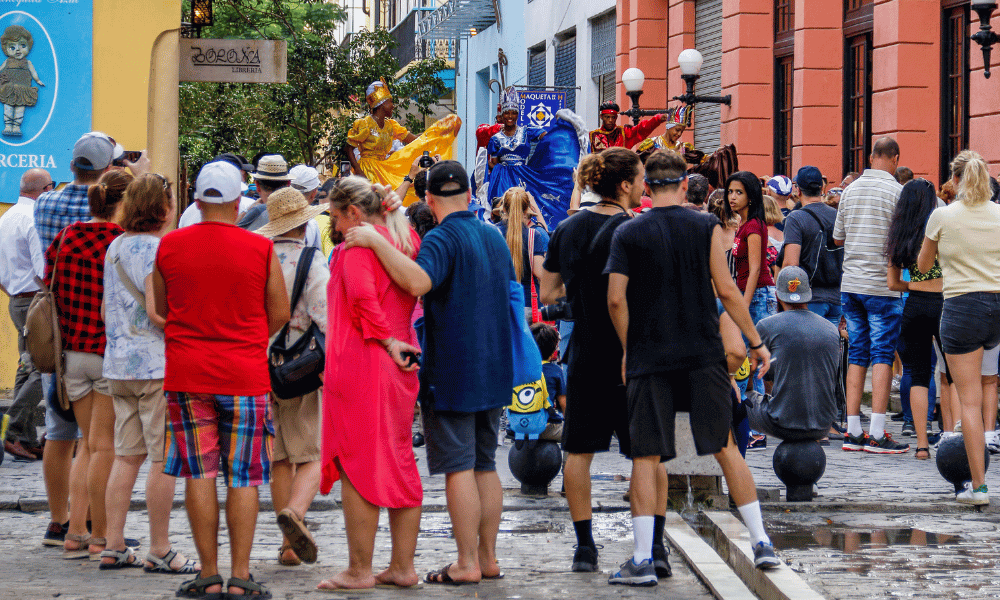
Is Cuba safe?
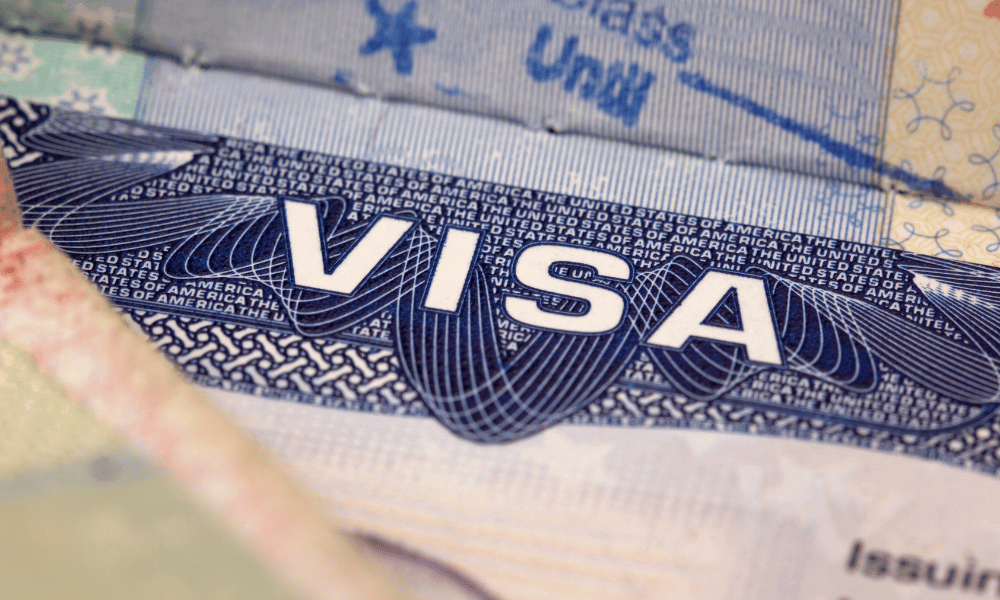
Can Europeans travel to the US if you have been to Cuba?
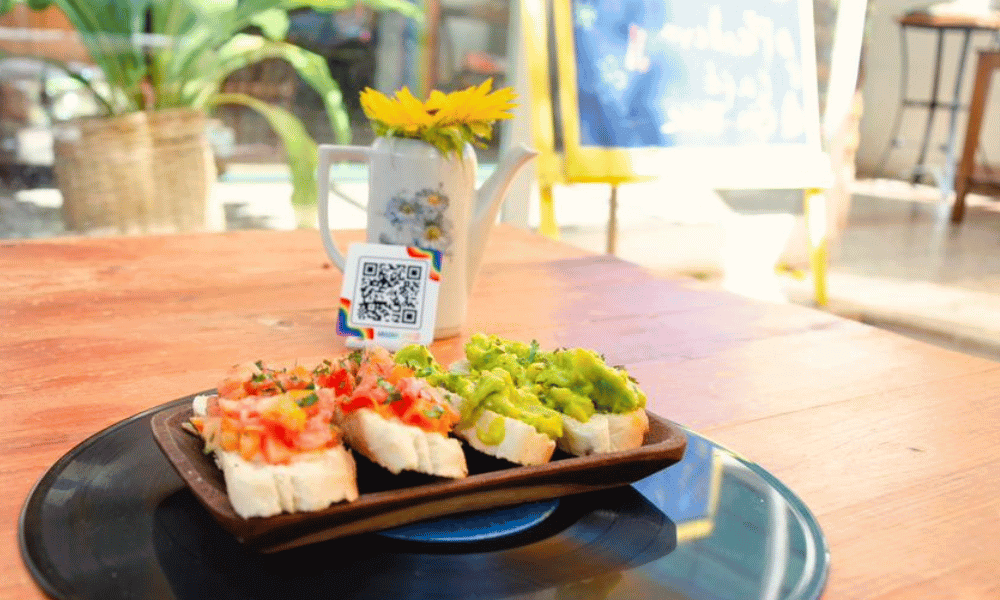
Top vegan places to eat in Havana

Cuba is open! Book your trip now!
Free cuba travel guide.
Subscribe to our newsletter to get useful information and up-to-date insights on the island. Get tips on:
✔ Local language ✔ Cycling & Trekking ✔ Money & Costs ✔ Transport ✔ Hotel & Facilities
Business Channel B2C B2B Guides Journalists
Downloaded Destination Guide Bike Cuba Cubania Classic Cycle Cuba Insight Experience Havana Cuban Active Adventure Western Skyline Ride Cuba Completa Hip Havana Salsa Cubana Road Cycling Western & Central Cuba Bikepacking Cuba Kayaking in Cuba Run And Cycle In Cuba Havana Marathon Queer Cuba Havana Cycling Tour Western Cuba Trek Family Active Adventure Central Cuba Bike Ride Cuban Discovery Family Beach and Culture Central Cuba Trek Western And Central Cuba Trek Road Cycling Cuba Vuelta de Cuba
Consent I am happy for Cubania Travel to contact me occasionally via email
Click here to download Haga clic aquí para descargar
View Privacy Policy
We’re sorry, this site is currently experiencing technical difficulties. Please try again in a few moments. Exception: request blocked
Sign in with your email and password
D’viajeros means ‘for travelers’ in spanish, how to fill out the cuba entry form on the d’viajeros website before travel.
The online D’Viajeros form is mandatory for all persons coming to Cuba. The form can only be submitted within 48 hours of arrival to Cuba. Cuba Explorer explains the step-by-step process to complete the form with minimum frustration. Our instructions are tailored to US citizens and residents visiting Cuba as short-term guests and students. We assume you have nothing to declare; you are not bringing illegal items or more than $5,000 USD. Take a moment to review the steps before you fill out the online D’Viajeros form. We promise it will save you time and anxiety. The QR Code provided at the end of the process is required by US airlines and Cuban immigration. Link to D’Viajeros at the end of this page.
Choose language, then click Form Request

Fill out sections in red. Your name should match name on your passport.

Just the sections in red.

Just two sections in red. Cuba does not require Covid information.

Fill out three sections in red.

Just two items in red.

Next step critical to get your QR Code.

Print this PDF. Put with your passport. Save to your phone. QR Code required for US airlines and entry into Cuba.

With this PDF QR Code document in hand, together with your passport, and Cuban Tourist Visa, you are ready to visit Cuba.
Remember , you can only complete the D’Viajeros online entry form 48 hours before arriving in Cuba. Attempting to do so earlier will result in losing the details you input. The QR Code provided at the end of the process is required by US airlines and Cuban immigration.
Weekend in Havana review
Very nice people. Our Cuban tour guide Claudia was excellent, friendly and professional. The tour was without problems.
John Alderman, Iii Charleston, West Virginia
Rene Houghland in Cuba review
I can't get Cuba out of my mind. Gretel was the perfect hostess and guide. We learned more than I ever imagined. Can't wait to go back! I ... read more
Rene Houghland Nashville, Tennessee
Illinois Legislators & Friends review
It was a very nice trip, lots to do, learned a lot about the culture and the people. The cooking and mojito lessons were tops. The city tour ... read more
Rita Mayfield Waukegan, Illinois
After four days in Havana, I found the city to be beautiful and historically significant. All the Cubans with whom I came in contact were kind and generous. ... read more
Lauren Fischel Fairfield, Connecticut
I found the experience quite enlightening. I enjoyed learning about Cuban culture and people. I have a greater appreciation and respect for Cuba as a result of our ... read more
Paul Williams Chicago, Illinois
I was worried before travel that Cuba amenities would be sub-par. Instead, the hotel, restaurants, pool, and so on were all of an excellent standard. I loved Cuba! ... read more
June McCarthy Roswell, Georgia
Visiting Cuba was everything I hoped for and more. The people are warm, the country is splendid, and the culture full of vibrancy and pulsating energy. Our tour ... read more
Kimberlee Sherbrooke Baltimore, Maryland
Sharon Macias in Havana review
I was very impressed with the people, the culture, and the spirit of the people. I can see how they struggle for things we take for granted, wi-fi, ... read more
Sharon Macias Palm Desert, California
Christal Badour in Cuba review
We loved our trip to Cuba! Everything was very well-organized, our guide and driver were fantastic. All of the people we met were extremely friendly and we loved ... read more
Christal Badour Hirsch Lexington, Kentucky
Havana extravaganza review
Cuba is fascinating, intriguing, alluring, spectacular, beautiful, mysterious and complicated all wrapped up together. The people of Cuba were so warm and welcoming. The architecture and American cars ... read more
John Mason Frisco, Colorado
I was surprised at the resilience and resourcefulness of the Cuban people, who have been cut off from purchasing from the U.S. and its allies. The people ... read more
Sandra Buckhoy Broadview, Illinois
Marvin Murry in Cuba review
The people are very intimate with their music. It seems everywhere we went we saw singers, dancers, musicians or all three. We loved the diversity of the people ... read more
Marvin Murry Dallas, Texas
Cuba discovery review
The people were so friendly and helpful. I loved all of the gardens and architecture.
Paula Rosenbaum Pontiac, Illinois
Moh Rahimi in Cuba review
We really enjoyed our trip to Cuba. people are very nice respectful and friendly, Cuba is very safe, even safer than the US. We walk late at night ... read more
Mohammad Rahimi Brentwood, Tennessee
This was one of the most memorable cultural and educational exchanges I've experienced during my adult life. Our travel to Cuba was an unforgettable educational experience. We had ... read more
Wild Cuba adventure review
Cuba is beautiful and its people are friendly and helpful. It’s nice to be someplace that hasn’t been overrun by commercial tourism (yet). I learned so ... read more
Stella Gevarguize Yonkers, New York
The people are so friendly, hard-working, interesting, and welcoming. Cuba is a mix of old and new, a beautiful place and so much history! Liked learning about the ... read more
Cynthia Rung Il, Illinois
Cubans are resilient, beautiful, friendly. Loved the variety; getting to see and meet some locals, the different restaurants for the flavors of Cuba; the comfortable hotel; and ... read more
Bandele Adeyemi-Znidarcic Mamaroneck, New York
People are friendly. Our designated stops were rich in history. Our tour guide Norberto was very knowledgeable and personable. Tour met my expectations.
Linda Kisberg-Katz Frisco, Texas
Growing up in America and the story of the Cuban Missile Crisis and Fidel Castro and flying over Cuba to Grand Cayman Island, I remember looking out the ... read more
Pete Mannion New York, New York
Old Havana and the sea review
I plan to return. I enjoyed the tour thoroughly. The Cuban people are ultra-friendly. Every scheduled activity was exciting. Our guide Atila was nice and knowledgeable.
Roy Fox Memphis, Tennessee
Eston Schwartz in Cuba review
People were so friendly and giving. We were walking on the street in Havana and people would come up to talk to us and never ask for anything ... read more
Eston Schwartz Columbia, Missouri
Cuba is a wonderful place to visit but still needs investment to develop its tourist base. People are very nice, polite and helpful. People who work in the ... read more
Agata Woldan-Lopez Woodside, New York
Paul Kellett in Cuba review
The Cuban people are very helpful kind and sincere. Great prices on food and drinks – both were awesome. The experience was very laid back – no rushing from A ... read more
Paul Kellett Gadsden, Alabama
I was very surprised by the level of satisfaction the Cuban people have for the government and their situation which was contrary to what I supposed. Everyone was ... read more
Danielle Breaud New Orleans, Louisiana
Wonderful, warm people! I'll remember our walking tour of Old Havana and our guide Rachel forever.
David Prensky Yardley, Pennsylvania
Great people, great history and wonderful learning experience. Loved each of the scheduled activities, and our very knowledgeable tour guides, as well as the visit with Professor Núñ... read more
Ruth McCoy Missouri City, Texas
It was a wonderful experience! The people were friendly and the food was delicious! I saw many interesting sites. I would recommend anyone to take this tour.
Karma Stark Mantua, New Jersey
We loved this trip. Everyone was friendly, the food everywhere we went was excellent, and the accommodations were terrific. Most special: the food, the people, our tour guide ... read more
Beth Neiderman Ventnor, New Jersey
Matadial Manjushree in Havana review
Cuba was a phenomenal visit. Out tour guide was excellent and very knowledgeable about Cuba and the world. Pavel truly made our trip very enjoyable. I wish I ... read more
Manjushree Matadial West Orange, New Jersey
Lets Go to Cuba review
Caring, imaginative, loving people and nation. Definitely struggling, but strongly bonded as a community. Enjoyed the Muraleandro community project visit, suggested by our guide, Laura. She helped us ... read more
Alejandra Beatty Arvada, Colorado
Manuel Rivero in Cuba review
Cuba is a beautiful country. Its natural beauty is varied and often breathtaking. The music, art, and architecture are as beautiful and diverse as its natural gifts. We ... read more
Jennifer Vasile Forest Hills, New York
Western Cuba culture review
Cuba is an exciting country with a rich and colorful history. I really enjoyed learning about the intricate culture and history. The Cuban people are friendly, helpful and ... read more
Kirsten Jensen Vienna, Virginia
I had a very positive reaction to the people despite their many limitations. We enjoy the intimate relationship with our guide and driver. The interaction was beyond my ... read more
Marcia Hajduk Harrisburg, Pennsylvania
Havana, Cuba was amazing. The people were all so friendly, the food was amazing, and I really enjoyed the music and dancing. Mojitos, mojitos, mojitos – I love them, ... read more
Katherine Phillips New York, New York
My wife detailed our impressions here: https://beckygiovagnoni.wordpress.com/2019/08/13/heres-to-ten-years/Our guide Atila was the best. We had no problems whatsoever.
Christopher Giovagnoni Colorado Springs, Colorado
Jet Royal Group in Cuba review
Not my first visit to Cuba as I was the group leader. Every time the people and culture are AWESOME! We received ongoing professional service from our tour ... read more
Dolores Roxan Collins Upper Marlboro, Maryland
Cuba's hidden gems review
The trip was wonderful. The people were so friendly. I loved the antique cars. I would have liked more night spots!
Johnny Moore Birmingham, Alabama
Very interesting. I now have a better understanding of their history and culture, and can contrast the parts that are better than the US, and parts where the ... read more
Alan Hickox Aberdeen, Maryland
I love the people. They were gracious, kind, and beautiful. I loved talking with the professor and learning about the history of the music. Our guide Geldrys ... read more
Deborah Parker Powell Milwaukee, Wisconsin
I love Cuba and was so happy to return for a second trip. I took my sixteen-year-old grandson, and he had a wonderful time as well. The people ... read more
Marjorie Forman New York, New York
Beautiful place with lots of interesting venues, and people who are friendly and welcoming. I loved that we ventured out of the city center to see places we ... read more
Susan Moguel West Palm Beach, Florida
I loved it so much! No complications. Agenda perfect.
Jeffrey Allen Smith Sammamish, Washington
The Cuban people are hard-working and kind. It is a country with a very rich history. I loved our tour guide Otto Sanchez. He was excellent and able ... read more
Ruth Anne McGinley Mechanicsburg, Pennsylvania
Without exception, everyone we met in Cuba, both on tour and our own, were warm, welcoming, engaging, and fun to be with: in a word, delightful. My wife ... read more
William West Ventura, California
We enjoyed getting to know the Cuban people and the culture. We were sad that so many beautiful buildings are crumbling and in disrepair. We loved our trip ... read more
Cheryl Cagle Marietta, Georgia
Dream. Explore. Discover. Cuba with Angela Rose review
I loved Cuba, its people, and its culture. A gorgeous island with friendly people and great food! I enjoyed speaking with a Cuban real estate agent, and the ... read more
Angela Rose Atlanta, Georgia
Cuba is beautiful. The locals are warm and welcoming. So much history and so many traditions were shared with us during this trip. The tour was packed with ... read more
Ana Theresa Barr Chula Vista, California
Rachel Mullen in Cuba review
We loved every minute of our time in Cuba. Rachel, our tour guide, was absolutely perfect. She answered all of my pestering questions and was spot-on with ... read more
Daniel Mullen Nashville, Tennessee
Very interesting. I did a lot of research so it was close to what I expected. Enjoyed the food, coffee, and general sightseeing. No problems with this trip.
Jason Harding Macomb, Michigan
- Search Search Search …
- Search Search …

How to Fill in the D’Viajeros Form for Cuba
In the 48 hours before you travel to Cuba you’ll need to complete the D’Viajeros Form, an online form, issued by the Cuban Government. It’s a relatively simple form, but it’s a requirement for traveling to Cuba. It includes personal information, and customs information and must be completed by all travelers, regardless of nationalities (including returning Cubans). Our guide covers all the information you need, the sections to complete, and what health information you need to provide. Here’s our guide on how to fill in the D’Viajeros Form for Cuba.
THIS POST MAY CONTAIN COMPENSATED AND AFFILIATE LINKS. MORE INFORMATION IN OUR DISCLAIMER
The D’Viajeros form is an online system that collects information about you, the traveler, for your trip to Cuba. It combines information for the immigration, health, and customs services of the Government of Cuba. This form, “the travelers” in English is required for ALL travelers, regardless of your nationality, immigration status, or mode of travel. You need to complete the D’Viajeros form if you’re flying to Cuba or if you’re arriving at one of Cuba’s Ports or Marinas.
You must have the form completed BEFORE you arrive at the airport as it will be checked by your airline. Some of the fields are mandatory, I have detailed where they are. As ever when traveling, I recommend you only complete mandatory fields – APART from the email address on the Personal Information Page, definitely include this.
What is the D’Viajeros Form?
Before 2023 there were separate forms that needed to be completed when traveling to Cuba. Some of these were online and some were paper forms. Just like you get in any other country when you arrive.
The D’Viajeros Form for Cuba combines the previously used
- Boarding and Disembarkation Form/Card
- The Customs Declaration Form
- The Travelers Health Affidavit
You can access the D’Viajeros form here .
Who has to Complete the D’Viajeros Form?
Everyone has to complete a D’Viajeros Form. That’s every member of the family, including children. Each individual traveler. And yes, Cubans need to complete it too.
What you need to complete the D’Viajeros Form
You will need the following pieces of information for each traveling passenger to complete the D’Viajeros Form successfully.
- (Full) Name (although middle names are not mandatory, I recommend using them if they are on a passport or travel document)
- Country of Birth
- Issuing Country of Passport or Travel Document
- Passport Number
- Country of Permanent Residence
When do you need to complete the D’Viajeros Form
You can only complete the D’Viajeros Form in the 48 hours before you travel. If you visit the D’Viajeros site before this, then your travel dates will not be available in the calendar.
Where to find the D’Viajeros Form
The D’Viajeros form is available online at https://www.dviajeros.mitrans.gob.cu/
Step by Step Guide to Completing the D’Viajeros Form
First go to the D’Viajeros Webste. You’ll find it here.
Selecting the Language to Complete the D’Viajeros Form in
The D’Viajeros form is available in Spanish, English, French, Russian, Italian, and German. You can change the language, by clicking the logo at the top right-hand corner of the webpage.
If you need a language other than that, I’d recommend using the Chrome web browser and selecting to translate automatically.

Click FORM REQUEST. This will begin your process of completing a new D’Viajeros form.
Completing the D’Viajeros Form Page 1: Personal Information
On this page, you’ll need to enter Full Name, Date of Birth, Gender, Country where the traveler was born, Passport Issuing Country, Passport Number, and Country of Permanent Residence.
The fields that are MANDATORY will be ringed in RED. When you complete them they will go green. If a field has a grey ring around it, then it is not mandatory.
I also recommend including your email address on this page. This means that at the end of the process, you will be emailed a copy of your D’Viajeros form, as well as the code that you will need if you have to edit your form at a later date.
If you miss one of the mandatory fields, then you will not be able to progress to the next page and you’ll get an error message.

When you have completed all these fields, then Click NEXT. If you make a mistake you can always click RETURN which will take you to the previous page.
Completing the D’Viajeros Form Page 2: Migratory Information
On this page, you’ll be completing the following fields (and note again, if they are RED then they are mandatory, and once you have completed them the ring around the field goes green)
- Arrival Date (day in numbers, month year)
- Flight Number
- Airline Name
- Airport of Entry to Cuba
- Traveler’s Country of Origin (where did you take your flight to Cuba from)
- Travel Reason

You must type in your Flight Number
Select your airline from a drop-down list
Select your arrival airport from a drop-down list – they start with the name of the airport and include the airport code.
A.I. Jose Marti (HAV) is Havana International Airport
Select your travel reason from a drop-down list that includes
- Transhipment
Note these reasons are from the Cuban Government. They are NOTHING to do with what you, if you’re an American, might have had to detail for the US Government.
When you have completed this page, then click NEXT.
Completing the D’Viajeros Form Page 3: Sanitary Information
This information was previously known as a health declaration.

You’ll need to complete the type of accommodation that you’re staying in (Home, Hotel, or House for Rent). This is a drop-down list to select from. If you are staying in a Casa Particular (you should, they’re fabulous, you can read my guide here ), then select House for Rent.
If you are staying in a hotel you will select the name of it from a drop-down list.
And then the address of where you are staying. If you are traveling around on your Cuba Itinerary , then put the address of the first night you are staying.
The only other mandatory information required on this page is the province in which you are staying for that first night. This is a drop-down list.
The other fields were used for travel during the pandemic. My guess is that they are left in there in case something similar happens in the future. But you do not need to complete them.
Completing the D’Viajeros Form Page 4: Customs Information
There are two required fields on this page. They are marked with an asterisk (*). It’s the first question and the last one.
Unaccompanied baggage? (Yes or No)
Do you have something to declare at Customs? (Yes or No)

There is no requirement to declare what you’re bringing unless you are bringing
- More than US$5,000 in cash
- Miscellaneous non-personal items worth more than US$1,000
Completing the D’Viajeros Form Page 5: Sworn Declaration
On the Sworn Declaration page simply check the box indicating that you agree with all the content that you’ve typed in and that it is complete and true.

Then type in the code that you see, this is to check that you’re not a robot!
Completing the D’Viajeros Form Page 5: The PDF and QR code
This page is the final page. You can click View PDF , which will open in a new window and which will display all the information that you’ve inputted, as well as a QR code.
Printed on this screen is a code that you can use to return to this page and edit the form if you need to.

Save this PDF to your computer or phone.
You can also click EDIT, which will take you back to the first page of the form (the personal information page).
Frequently Asked Questions about Completing the Cuban D’Viajeros Form
Here are the main questions that travelers have about completing the D’Viajeros form for visiting Cuba.
Do I need anything else to travel to Cuba?
Yes. You will need a Tourist Card to Travel to Cuba. My guide on Cuban Tourist Cards is here. The Tourist Card scheme is being replaced by the Cuba eVisa. You can read all about Cuba eVisas here.
EASIEST WAY TO GET AN EVISA

Easiest Way to Get a Cuba eVISA
Buy online, get your Cuban eVisa without needing to visit a Cuban consulate, send money to the embassy. Buy from EasyTouristCard – an approved Cuban evisa vendor. It’s quick, easy and safe. Choose standard or expedited delivery!
I recommend also that, if you plan on using the Internet in Cuba, you buy and download a VPN before leaving home. This code will give you 3 months for free on the Best VPN for Cuba. I’ve included these details and other items in my Cuba Travel Checklist.
Can I change the language on the D’Viajeros Form website
Yes. You can change the language on the D’Viajeros form. Simply click on the language button at the top right of the screen.
How long does the D’Viajeros Form take to complete
It should take around 10 minutes per passenger to fill in the D’Viajeros form.
Do Cuban Citizens Need to Complete the D’Viajeros Form?
Yes. All travelers are required to complete the form.
What happens if I forget to complete the D’Viajeros form?
You will not be allowed to board the plane. If you don’t have a copy of the form, then you’ll have to download it, or complete it and then download the PDF before boarding your flight to Cuba.
Is it one D’Viajeros Form per family? Or one D’Viajeros Form per person?
You need to complete one D’Viajeros form per traveler. If you are traveling with children then you will need to complete one form for each of them.
I am American, can I select Tourism on the D’Viajeros Form as the reason for visiting?
You can select what you want. This information is for the Cuban Government. It is not for the American Government.
My arrival date is not on the D’Viajeros Form calendar help!
You can only complete the D’Viajeros form 48 hours before travel. If you try to complete it before this time, then you will not be able to select your departure date. You can see what this looks like below.

Do I need to print the D’Viajeros form?
You do not need to print the D’Viajeros form, but you will need a copy of it available, either digitally or in printed form for your departure airport and also at arrivals in Cuba.
If I hit the PREVIOUS or RETURN button does the D’Viajeros Form save my content?
Yes. If you need to return to a previous page on the D’Viajeros form your content is saved.
ESSENTIAL TIPS FOR EXPLORING CUBA INDEPENDENTLY
These are the resources and booking sites that we use when traveling to Cuba.
-Get a Cuba Travel and Medical Insurance Quote from Visitors Coverage here – Alternatively, Civitatis Insurance is a great option for the required insurance for Cuba. Read about the Cuba eVisa , and buy your Cuban eVisa here.
Flying via the USA and relying on entry with an ESTA? Read this.
Book your Viazul Bus tickets here Use Daytrip to book transport between cities AND to sightsee along the way
Pre-book and prepay shared & private shuttles here Book the best FREE Walking Tours in Cuba Reserve attractions, day trips, and activities in Cuba here Get online in Cuba EASILY with a Cuba eSIM Card here, or read my guide to Cuba physical SIMs here.
Download and install a VPN BEFORE you travel to Cuba > discount coupon here Book Accommodation in Cuba’s Casa Particular here
Final Words on How to Fill in the D’Viajeros Form for Cuba
The creation of the D’Viajeros form means that there’s no requirement to complete three individual paper forms before traveling to Cuba. It streamlines the process and removes paperwork. The form is easy to complete, provided you have all the information to hand before completing it.
Cuba’s Best is a participant in the Amazon Services LLC Associates Program, an affiliate advertising program designed to provide a means for sites to earn advertising fees by advertising and linking to amazon.com, amazon.co.uk, amazon.ca. Amazon and the Amazon logo are trademarks of Amazon.com, Inc. or its affiliates .
Sarah Carter
Leave a comment cancel reply.
Your email address will not be published. Required fields are marked *
Save my name, email, and website in this browser for the next time I comment.
Privacy Overview

How to Fill Out Cuba’s D’Viajeros Immigration Forms
Step-by-Step Instructions for Getting the Cuba QR Code
During the pandemic, the Cuban government switched from paper customs, immigration, and health declaration forms to the electronic forms which travellers must fill out prior to arrival on the D’Viajeros website. Airlines require you to show this code before you are allowed to board your flight to Cuba. Here are step-by-step instructions to help you fill out the D’Viajeros travel forms and obtain the QR code that you need to enter Cuba.
Step 1: Accessing the D’Viajeros form
Cuba’s customs and immigration forms are on the D’Viajeros website . You will be able to fill in the form around 48-72 hours before arrival, you can’t fill it out any sooner. Conversely, you should not wait until the last minute to fill out your form in case the website doesn’t work or you have trouble connecting. If it doesn’t work, that gives you time to try again. While Cuba will allow you to fill out the paper forms upon arrival, airline desk agents expect to see the QR code during the check-in process.
To fill out the form you will need:
- Passport information
- Arrival and departure flight number
- Address of accommodations
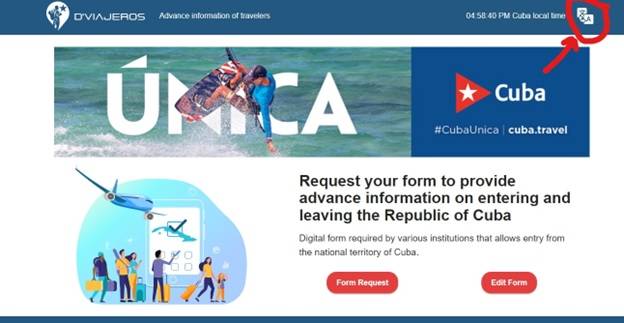
Step 2: Change the language
The page usually loads in Spanish; you can change the language to English and six other options by selecting the translation symbol at the top. The translation option could also be represented as a flag or text. Sometimes there is a delay, if you don’t see any language option, allow the page to load completely.
Step 3: Fill in Personal Data
To start the form, click the “form request” button. The first section is “Personal Data”; only the fields highlighted are mandatory to fill out. Ensure you use the proper date format: day/month/year. For United States, enter USA. Although the email category is not marked mandatory, you must fill this out to get the QR code emailed to you.
Step 4: Fill in Migratory Information
Only three days are available on the calendar for the arrival date because you aren’t permitted to fill out the form further in advance. For “port of entry”, you will select your arrival airport in Cuba – for Cuban Adventures travellers, it is usually Jose Marti Airport. Your “country of origin” is the country where you are departing from, not where you live. So if you live in Australia but fly to Cuba via Mexico, you will enter Mexico.
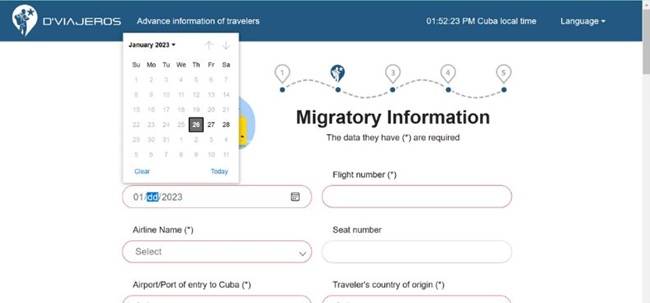
Step 5: Select Reason for Travel
Are you coming to Cuba on vacation? If so, you must select “tourism”, even if you are a US citizen . It doesn’t matter that the US government considers tourism to Cuba illegal, this is the Cuban government’s form. When it comes to the Cuban Government, you want to be a tourist.
Leave “Institution” blank.
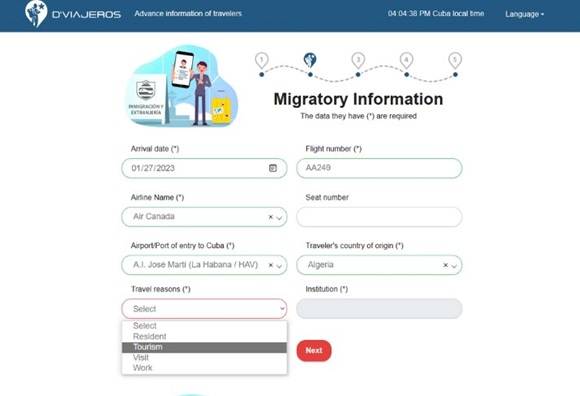
Step 6: Sanitary Information
This section is your health declaration. As you see, it is mostly optional, except for questions about where you are staying in Cuba. However, it is good to fill in everything except the PCR information. No vaccines or testing are required to enter Cuba, although you may be subject to a temperature check and random Covid testing upon arrival.
If you are staying in a casa particular, also known as a bed & breakfast, or guesthouse, you will select “House or Room for Rent”.
The most common municipalities in Havana where tourists stay are Habana Vieja (Old Havana), Centro Habana, and Plaza de la Revolucion (Vedado).
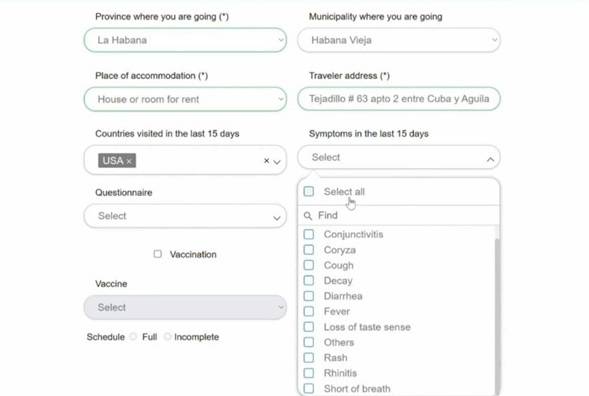
Step 7: Customs Declaration
Most travellers only need to select the following on this section of the form:
Unaccompanied baggage – No
Number of Minors
Do You Have Something to Declare at Customs – No
If you travel with children or other family members, each person needs their own form. However, the form asks you for the passport number of children under 10 who are accompanying you.
Most visitors to Cuba will not need to declare anything . Even if you bring food, medicine, or other goods as donations or “gifts”, you are not required to declare them.
You do not need to declare your cash as long as it does not exceed the value of US$5000.
Leave the MINCOM authorisation number blank.
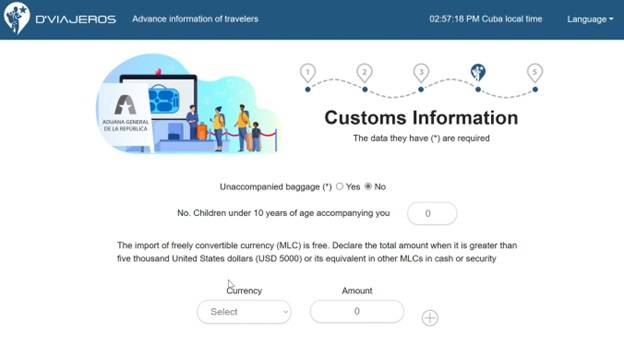
If you need information about what you can bring into Cuba, there is a Traveler Manual in English and Spanish on the D’Viajeros home page.
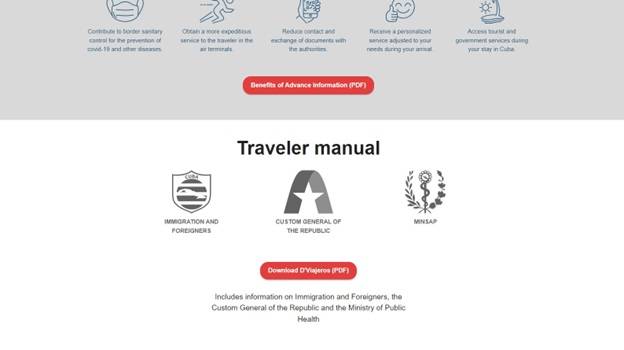
Step 8: Save or Print the QR Code
After completing the above steps, you will sign the declaration and submit the form, giving you access to your QR code. While this code is supposed to be emailed to you, you should screenshot, print, or download the code in case you never get the email. You will need to be able to access it even without an internet connection.
Frequently Asked Questions
What if the d’viajeros website doesn’t work.
If you are having trouble filling out the D’Viajeros form, make sure you are entering the information correctly, e.g., date in the proper format, and not trying to access the form too early. If the form isn’t working, you will need to keep trying, which is why it’s important to fill out the form at the first opportunity. If the system is down, you can fill out paper forms in Cuba. Although there is a contact on the website, you may not receive a response if you reach out for tech support.
Do Cuban Citizens need to fill out the form?
Does my child need their own form.
Yes, each person in your party needs their own form.
Will I get in Trouble for Selecting Tourism as my Reason for Visit?
No, this is Cuba’s form, not the US’ form. Cuba does not enforce the embargo against it. In Cuba, if you are visiting for a reason other than tourism, you may have to have a special visa.
What Happens if I Make a Mistake or Need to Change the Form?
You should receive an email with a QR code and a form code that you can use to access your form on the website. You can choose the option “Edit Form” on the homepage.
What if I Don’t Know What to Put in Some of The Fields?
These step-by-step instructions cover every mandatory field on the form. If there is a field that you don’t know how to fill out, check and see if it’s mandatory or if you can just leave it blank.
My Arrival Date Isn’t on the Calendar!
You are trying to fill out the form too soon. You need to wait until 2-3 days before your arrival.
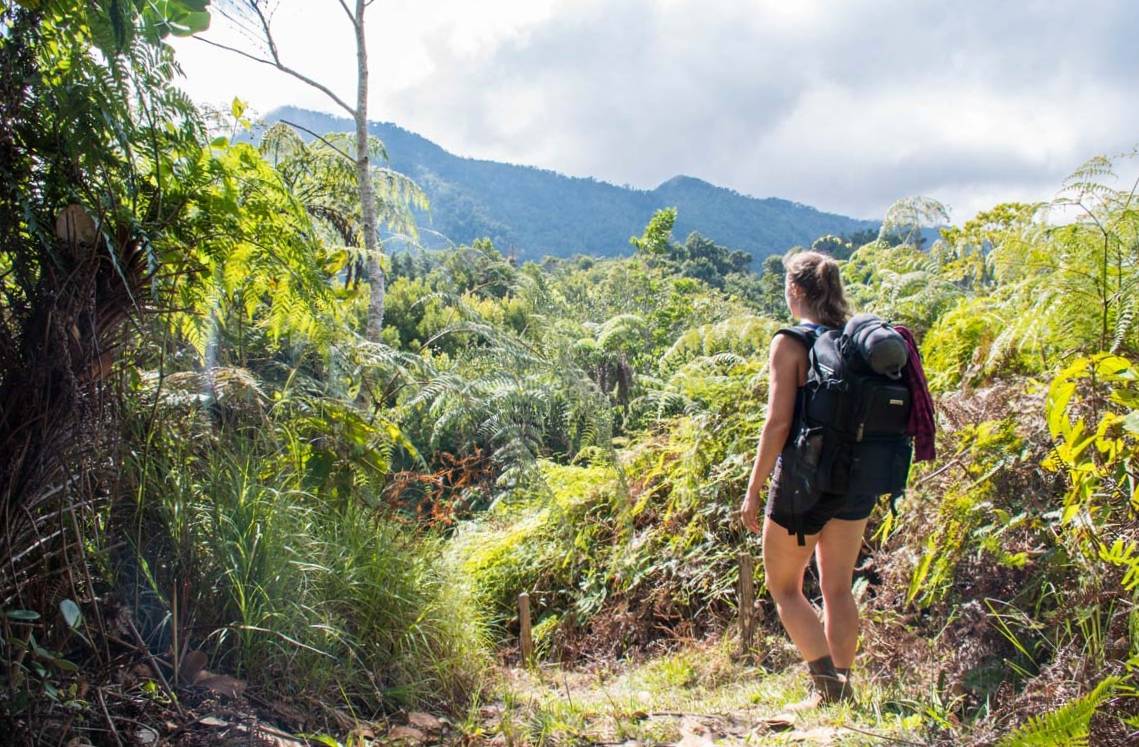
Favourite treks in Cuba in order of best hike first. See what our tour company founder John Ahrens recommends as the best walks to do in Cuba including Pico Turquino
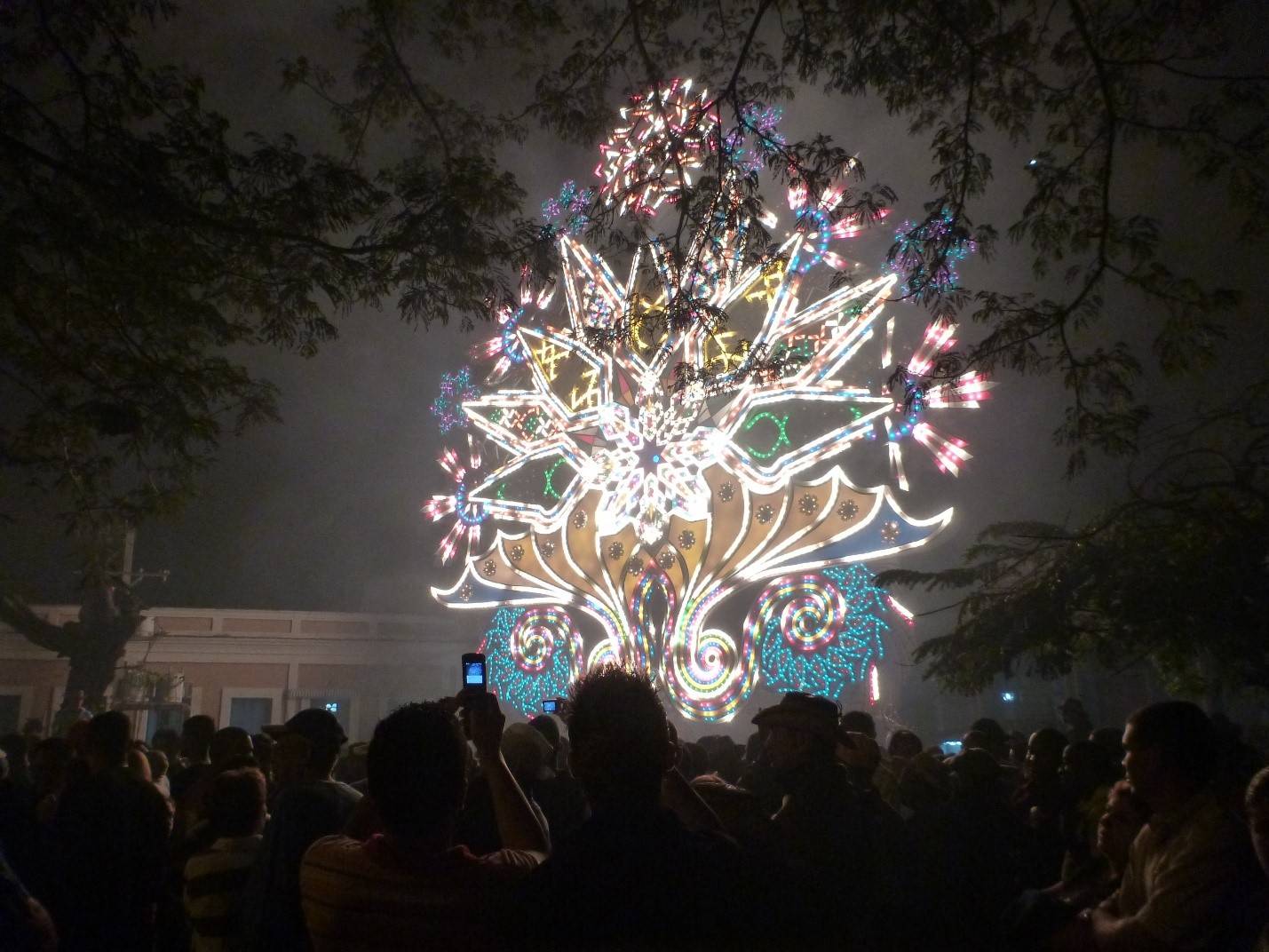
How do Cubans celebrate Christmas? Learn about a time when Santa was banned and what to expect In Cuba during the holidays

The winter months of Nov, Dec, and January are a great time for birdwatching in Cuba. This is when migratory species are present on the island and the weather is fine and mild.
.jpg?ver=-4KtfzBMWMZNxpQMgpv18w%3d%3d)
- How to get to Cuba
- D'VIAJEROS FORM
- Regulations and Formalities
- Health and security
- Communications
- Accessories for Traveling
- Hours and holidays
- Tourist Information
Regulations for traveling to Cuba.
Find out here the regulations for traveling to Cuba and the necessary documentation. Now easier with the digital form https://www.dviajeros.mitrans.gob.cu, after completing it you will receive a QR code that you will have to show at the entrance to the country.
The requirements to travel to Cuba are:
- Valid passport.
- Tourist visa.
- Travel insurance with medical coverage.
- Traveler's Health Declaration.
- Round-trip airline ticket.
- QR code of the digital form
Passport and Visa
Find out here what you need to travel to Cuba and the types of visa according to the period of your stay and how to obtain it, as well as the modalities of visa application.
The passport must be valid for 6 months from the date of entry into the country. It must be kept until you leave the country; and in case of loss, you must go to an immigration office to obtain a duplicate upon payment of the corresponding fee.
The tourist visa is valid for a single entry to Cuba and is mandatory to enter Cuba if you do not have Cuban residency. The maximum stay in Cuba as a tourist is 90 days, extendable for 90 more days.
Chinese citizens are exempted from the visa requirement, which means that Chinese nationals will not need a visa to enter Cuba, they will be able to do so with their regular passport.
Types of visas and how to obtain them
- Short-term visas: this is the general visa for tourists and allows the stay and transit through Cuba for 90 days.
- Long-term visas: in case you have other reasons for your trip (business, studies...) or you want to stay in Cuba for more than 90 days, you should contact the Cuban Consulates or Embassies. Exceptions are countries with which Cuba has visa-free agreements.
How to apply for a visa
1. Internet: https://evisacuba.cu/ 2. In person at the consulate 3. Through a Travel Agency
For more information you can consult the website of the Ministry of the Interior.
Tourist visas via internet, which replaces the current Tourist Card. Now you can process your tourist visa in a simple and direct way.
Benefits of the electronic tourist visa:
- It is requested in any consular office, Travel Agency and through the Internet from anywhere in the world (except the United States which is purchased from that same country) through the link https://evisacuba.cu.
- It eliminates the handling of a physical document in addition to the traditional travel documents.
- The electronic visa service will be available 24 hours a day.
- The tourist obtains the visa code and proof of payment by e-mail.
Find out here what you can and cannot import with you or in the luggage accompanying it when entering and leaving the country.
What CAN you bring into Cuba on a non-commercial basis and what are its limitations?
- Personal effects, for which no customs duties will be paid.
- Food, toiletries, medicines and medical supplies.
All passengers may import:
In addition to their personal effects, for which no customs duties shall be paid, passengers may import as part of their baggage, without commercial character and subject to the payment of the corresponding customs duties, new and used articles up to the limit in authorized value of one thousand (1,000) pesos. The value of the articles arriving in the country as unaccompanied baggage will be part of the maximum value allowed for that passenger. Minors, once they are ten (10) years old, have the right to import articles up to the limit of the established value. For the act of dispatch they must be assisted by an adult representing them. Minors under ten (10) years of age may only bring with them their personal effects, according to their age.
They are exempted from payment of duties:
- Up to 10 kilograms of medicines.
- Elaborated pharmaceutical products; wheelchairs for invalids; scientific, technical, art and literature books; musical scores; records, magnetic tapes, fixed views and cinematographic films for teaching purposes; prostheses, when they replace or substitute an organ or part of it; and equipment, books or materials for the blind;
- Disposable butts for adults;
- used personal objects brought by passengers in general and Cuban crew members of ships and aircraft and workers at sea;
- Household goods and personal effects of persons arriving in Cuba for the purpose of permanent residence, in accordance with the provisions of the legislation in force;
- products for the personal use of foreign scholarship holders residing in Cuba and materials necessary for their studies, as long as they maintain that condition; they may also import one (1) computer with its peripheral elements, only once during the period of their stay in the national territory;
- Medals, decorations and awards granted abroad, and the products that Cuban citizens receive as gifts or awards for their status as scientists, athletes, artists and others, as long as their origin is proven with the corresponding document.
- Products brought as temporary imports by foreigners as artists, athletes, specialists, scientists, journalists and filmmakers, passengers in transit and those persons arriving in the country under special circumstances.
The relaxations in the non-commercial importation of food, toiletries, medicines and medical supplies by natural persons applicable to unaccompanied baggage and air, sea and postal shipments are extended until September 30, 2024 . During this period, there is no weight limit for these items, as long as they are separate from the rest of the baggage and are not mixed with other items that are part of the baggage.
What you can NOT bring to Cuba?
- Psychotropic or hallucinogenic substances.
- Precursor substances.
- Explosives.
- Hemoderivatives.
- Drugs and narcotics.
- Obscene or pornographic literature, articles and objects or that attempt against the general interests of the nation.
- Air conditioners with a capacity greater than 1 ton or 12,000 BTU;
- Electric stoves and ranges, except those called induction glass-ceramic cookers, of any model and that their electrical consumption does not exceed 1500 Watt, per focus;
- Electric ovens, except those known as microwave ovens, and that their electrical consumption does not exceed 2000 Watt.
- Electrical resistors of any type.
- Light motor vehicles (cars, motorcycles and bicycles with combustion engines).
- Engines and bodywork of cars and motorcycles (frames).
- Animal products (cattle, pigs, sheep, goats and all species of ungulates) susceptible to be carriers of diseases.
What can you take from Cuba and what are its limitations?
- Tobacco and alcoholic beverages
- Likewise, in the case of tobacco and alcoholic beverages, the following quantities must be declared and the corresponding taxes must be paid: 200 cigarettes, 100 cigars, 50 cigars, 250 grams of tobacco, 1 liter of alcoholic beverages with an alcohol content over 22%, 2 liters of alcoholic beverages with an alcohol content under 22%, 4 liters of wine and 16 liters of beer.
What NOT to take with you from Cuba?
- Drugs and narcotics. Psychotropic or hallucinogenic substances.
- Precursor substances
- Hemoderivatives
- Obscene or pornographic literature, articles and objects or those that threaten the general interests of the nation.
- Cultural property declared part of the Nation's Cultural Heritage
- Handwritten books, incunabula (published between 1440 and 1500).
- Books and pamphlets with library stamps of the National System of Public Libraries and Cuban Organizations and Institutions, as well as Cuban Books of “R” editions.
- Foreign books, pamphlets and serial publications printed in the 16th to 18th centuries and Cuban books published in the 18th century.
- Lobster, in any quantity and form of presentation.
Medical Insurance
Since May 1, 2010, it is mandatory to have medical insurance to enter Cuba, since the policy must be presented at customs to enter the country.
There are many companies that offer these services at very affordable prices.
If you arrive without medical insurance you will be obliged to contract a policy with the state insurance company Asistur.
Sanitary Regulations
Since March 1, 2016, the Cuban Ministry of Public Health establishes that it must:
Strengthen international sanitary control measures and epidemiological surveillance.
Make health declarations at entry points for people coming from countries reporting Zika, Dengue, Chikungunya and yellow fever.
Other Procedures and Regulations for Traveling to Cuba:
- Notary Services
- Extension of stay
- Visa and Tourist Card Procedures
- Entry and exit stamps
- Foreign Investment in Cuba
Preservation of the Historic Memory
The Law-Decreet No. 265/2009 of the National Archive System of the Republic of Cuba regulates and rohibits the extraction of documents from the National territory. Documents that take part or may take part of the State Fund of Archives. Documents placed in files or in other places for their official conservation or under surveillance of a functionary. Documents with historic and patrimonial characteristics and institutional documents. The National Record of Cultural Property of the Culture Ministry is the entitled organism to authorize the temporary or definitive exportation of patrimonial assets at border.
Share Cuba Travel
Entry Cuba: Information About the Entry Form for Cuba
The Cuba Entry Form, known as the Cuba D’Viajeros, is a mandatory travel document for Cuba . All passengers must complete the form before entering, including Cuban citizens and residents.
The Cuba declaration form collects key information about you and your trip, including personal and passport data, travel details, and a customs declaration.
From Entry Cuba we explain the whole process to follow to obtain the D'Viajeros form, as well as an application system with added services for your peace of mind when obtaining this form.

How To Fill Out Cuba D'Viajeros Entry Form in English
You can complete the Cuba Entry Form online, either through the government system or using our simplified application platform .
Our platform offers a streamlined version of the travel declaration, which only includes the sections that are necessary for a successful application.
Steps to complete the Cuba D’Viajeros Entry Form
Follow the steps explained below to find out how to fill out the Cuba Entry Form in a matter of minutes :
1: Access the form
Ensure you have a stable internet connection and all necessary travel documents at hand.
Our form is automatically available in English , while the government form requires you to select a language first.
2: Fill in personal information
Enter your personal details accurately, including:
- Date of birth
- Country of birth
- Passport information
- Contact details
Make sure all information matches your travel documents to avoid any issues.
3: Provide travel details
Next, input your travel information including:
- Arrival date
- Flight details
- Country of origin
- Destination
- Reason for travel
- Accommodation details
4: Customs declaration
In this section you must state if you have any unaccompanied luggage .
You must then declare any items you are bringing into Cuba that may be subject to customs regulations . This includes cash amounts exceeding the allowed limit of USD 5000 (or equivalent), certain electronics, and other valuable goods.
Make sure to check Cuba's customs regulations beforehand to avoid any issues at the border.
5: Review and submit
Carefully review all the information you have entered to ensure its accuracy. Once you’re confident everything is correct, submit your completed D’Viajeros Cuba form.
6: Save or print your approved Cuba Entry Form
You’ll receive your approved form by email, as an attached PDF file with a QR code . You can either save or print a copy of this code, ready for scanning at the border.
Comparative of applying with us or with the Government
Our Cuba Entry Form application compares to the Government’s platform in the following ways:
We provide an alternative to the Government’s form, which speeds up the application process thanks to our additional features.
FAQs About Cuba Entry Form
Here you’ll find answers to frequently asked questions about the Cuba Entry Form.
Who needs to complete the form to travel to Cuba?
All travelers entering Cuba , regardless of nationality or residency status, must complete the Cuba D'Viajeros Entry Form. This includes tourists, business travelers, and individuals visiting family or friends.
Is it necessary for Cuban citizens to complete the form?
Yes, Cuban citizens are also required to complete the entry form . This is mandatory for all individuals entering the country, including Cuban nationals returning from abroad.
What should I do if I make a mistake on the form?
If you’ve submitted your form through our website and you’ve now realized you made a mistake, please contact us as soon as possible using our contact form.
What should I do if I don't know what to put in one of the fields on the form?
Our online application comes with handy tooltips throughout the form. If you’ve checked the tooltips and you’re still unsure, contact our team for assistance.
Do my children need to fill out their own forms?
Yes, each traveler, including children, must have their own completed D'Viajeros form .
Parents or guardians can fill out the form on behalf of their children , ensuring all information is accurate and complete.
Choose your language

Getting Around
Entry to Cuba: Visas & Travel Requirements
Traffic by the Capitol building, Havana
Photo: Shutterstock
Stay updated with the latest travel information for your trip to Cuba!
Embarking on a journey to Cuba? Here's your guide to the latest visa requirements and travel protocols. Whether you're coming from North America, Europe, or elsewhere, we've got you covered.
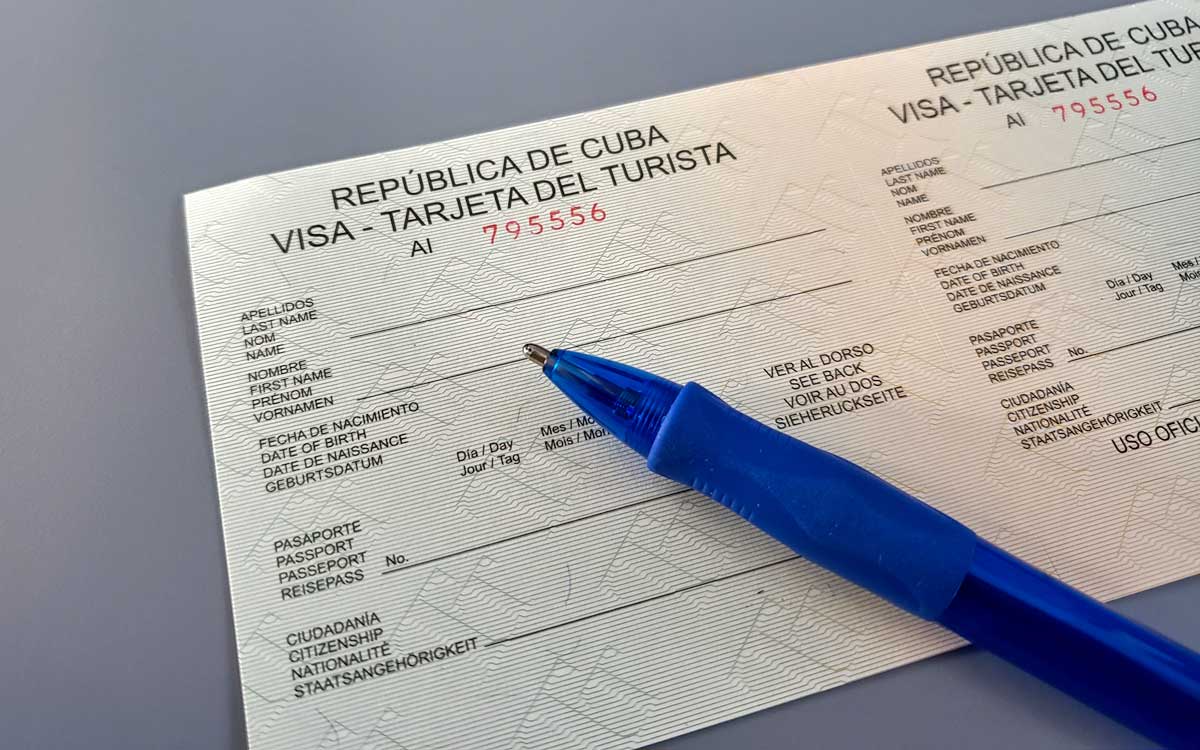
Cuba visa application form
What are the visa and entry requirements to Cuba?
US Citizens
Planning a trip to Cuba as a US citizen? There are special regulations you need to be aware of. While tourism trips to Cuba aren't yet authorized, general licenses have been issued for a variety of travel categories. If you meet the requirements of the general license under which they plan to travel, you won't need to apply for another permit from the OFAC (Office of Foreign Assets Control of the Treasury Department) for your trip.
However, it's important to note that the US Embassy in Havana and the State Department in Washington D.C do not process visa applications for trips to Cuba. If you need to apply for a visa or have any questions regarding your specific case, you should contact the Cuban Embassy in Washington D.C.
And remember, certain activities may not be allowed, so it's best to check with the US embassy for information on organizations or businesses in Cuba that U.S. citizens are not allowed to engage with due to economic sanctions or other legal restrictions.
Canadian Citizens
As a Canadian citizen, you'll need a valid passport for the duration of your stay in Cuba. Make sure your passport's expiration date isn't near to avoid any travel hiccups. Depending on your trip's purpose, you may need different types of visas. If you're traveling as a tourist, you'll need a tourist visa, which can be obtained from tour operators, airlines, or a Cuban government office in Canada.
European Citizens
If you're a European citizen planning to travel to Cuba, remember that visa protocols can vary depending on your country of residence. For most European citizens, a valid passport is required during your stay in Cuba. Some countries, like Spain, require the passport to be valid for at least 6 months.
It's also important to note that if you plan to travel to the United States after visiting Cuba, you'll need a visa. This is because the electronic system for travel authorization (ESTA) is not sufficient for those who have traveled to Cuba before. This visa must be obtained at the Consulate General of the US Embassy in your place of residence.
Given the varying requirements, it's a good idea to contact your tour operator or travel agency to understand the specific visa requirements for your travel.
Latin American Citizens
For Latin American citizens, a valid passport is required during your stay in Cuba. You'll also need to obtain a tourist visa or tourist card for your trip. This can be processed at tourism agencies or airlines, which usually handle its issuance.
The visa is generally issued for about 90 days and can then be extended. It's also important to note that you should have travel insurance with medical coverage.

Visa Costs: What to Expect
Visa costs can vary depending on where it's issued. Generally, prices range between $20 and $80. If you apply online, additional charges may apply, and prices can range from $110 to $150.
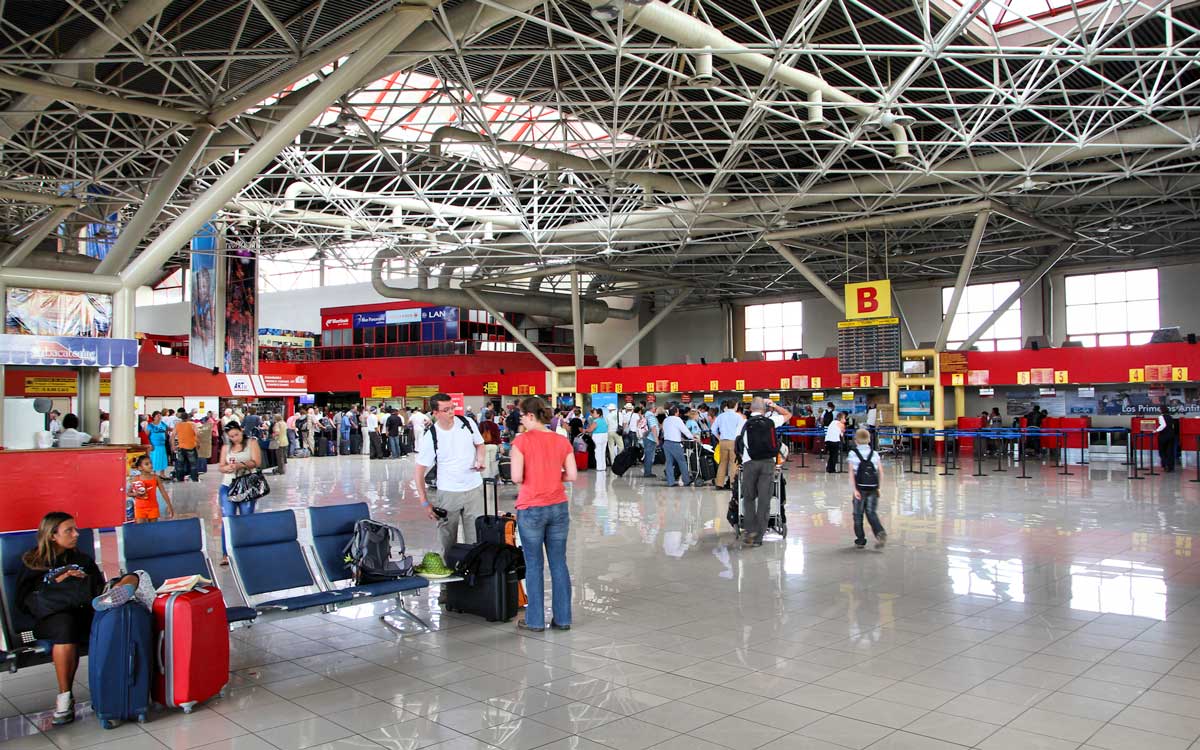
Jose Marti International Airport in Havana
What items can I bring to Cuba?
When packing for your trip to Cuba, you can bring personal effects, including personal phones and computers, free of charge. The range of objects you can bring to Cuba is quite wide, from musical instruments to televisions. However, some items may be subject to charges depending on Customs regulations.
Some items can be brought into the country without having to pay any import taxes. These include used personal objects, art and literature books, music discs, manufactured pharmaceutical products, and wheelchairs, among others.
However, it's crucial to be aware of prohibited items. While some of these, like explosives, drugs and narcotics, and blood derivatives, may seem obvious, others might surprise you. For instance, literature, articles or objects that are considered obscene, pornographic or that attack the general interests of the nation are also prohibited.
If you attempt to bring into the country articles that are not allowed for import, the General Customs of Cuba can exercise administrative sanctions. This means that Customs can seize those imported articles whose entry is prohibited in Cuba, as well as products that have been entered with a fraudulent declaration.
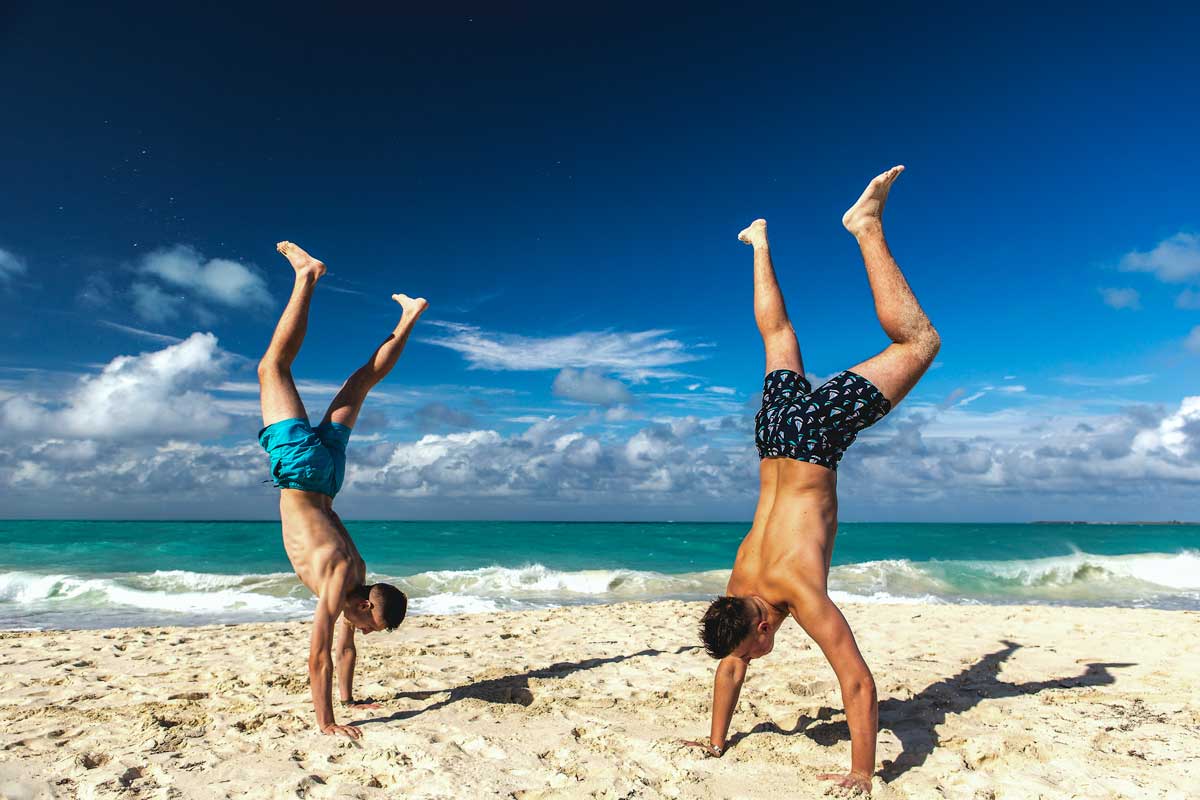
Travelers on a beach in Varadero
Photo: Unsplash
Health and Vaccinations
Before you embark on your journey to Cuba, it's important to ensure you're up to date with routine vaccines. This includes vaccines against chickenpox, tetanus, influenza, rubella, and polio. In the current climate, being vaccinated against COVID-19 is also essential.
Additionally, consider getting vaccinated against Hepatitis A and Hepatitis B. If your trip to Cuba includes exploring nature or venturing into rural areas away from the city center for activities such as outdoor camping, the rabies vaccine is also recommended. Travelers are also advised to consider the typhus vaccine.
Can I bring my pet to Cuba?
If you're planning to bring your pet to Cuba, there are a few requirements you need to meet. Make sure your pet has the necessary vaccines and an official health certificate. You'll also need to request a travel certificate for your pet from the Consulate or Embassy of Cuba in your country.
Written by Teresita Padrón .
Published July 2023.
Explore Top Destinations in Cuba
City guide: cienfuegos.
Cienfuegos is a picturesque coastal town with laid back charm
Find Hidden Oases in Havana’s Parks & Gardens We Love
Explore the lesser-known parks and gardens of Havana and dive
The Landscape of Cuba: Topes de Collantes
Enter and Explore Topes de Collantes. Home to amazing waterfalls
La Casa del Ché: The Home of Ché Guevara
Discover Ché Guevara's life & legacy at Casa del Ché
Six of Havana’s Coolest Independent Hotels
Explore the best hotels in Havana through our curated list,
Trace the Steps of Hemingway Around Havana
Stroll through Cuba’s storied streets with this guide to Ernest
Havana’s National Museum of Fine Arts
Your essential guide to one of Cuba’s most fascinating cultural
Where to Drink in Havana: Our Essential List of the Best Bars
Explore our essential list of the best bars in Cuba,
Dance to Your Own Beat at Havana World Music 2022
Havana World Music: Are you ready to break beyond the
When Is the Best Time to Visit Cuba?
Planning a visit to Cuba? The island offers sunny skies
Subscribe to our newsletter
Get more travel inspiration, tips and exclusive offers sent straight to your inbox
I would like to get Visit Cuba newsletters in my inbox
Paradise for Your Inbox

Simple Flying
Cuba now requires passengers to complete an online pre-arrival form.

Your changes have been saved
Email is sent
Email has already been sent
Please verify your email address.
You’ve reached your account maximum for followed topics.
EASA Certifies New Airbus A321XLR With Entry Into Service Expected End Of Summer
Critical 737 door plug mechanic on vacation when alaska airlines' blowout boeing assembled, delta air lines driving saf availability at minneapolis-st paul.
Since Monday, Cuba has required passengers to complete a pre-arrival form known as D'VIAJEROS. The form must be completed and shown to airline workers before travel to the island nation and requires passengers to input data such as their passport information, travel plans, and customs declarations.
As the world of travel becomes increasingly digitized, so too are the requirements of the passenger. More and more countries are requiring certain passengers to complete some form of electronic travel authorization before departure.
D'VIAJEROS is live
The new Cuba advance passenger information form, known as D'VIAJEROS, has been live since Monday, January 23rd. Unlike the US ESTA (which is only for those eligible for visa-free travel), the Cuban form is mandatory for each passenger and is intended to speed up procedures at points of entry. The form is free of charge to complete. Border workers will already have all the information that they need when they arrive in Cuba, saving a lot of questions. The online form replaces the previously required paper form.
There are five steps to completing the form online,
- Personal data
- Arrival information
- COVID-19 information
- Customs Information
- Declaration/Captcha
Once the form has been submitted, passengers will be presented with a QR code that will allow their form to be easily located upon arrival. Cuba has produced a Spanish-language video explaining the form,
Millions could use the system each year
The system is set to be used by millions of passengers each year. According to data from Cirium, according to the latest 2023 schedules (which could still change for later months), almost 4.5 million seats are on offer on flights to Cuba this year. Looking more specifically at February, 37 airlines have almost 385,000 seats on sale to the island nation.
Sunwing Airlines has the most seats on offer, with some 74,000 across 392 flights, with American Airlines sitting just behind, offering 388 flights. TAAG Angola has the smallest Cuba schedule, with just two rotations planned for February. However, as it operates the Boeing 777 on the route, it offers 65% more seats than Intercaribbean Airways, which has seven ERJ 145 flights scheduled to the island.
Not a new idea
The idea of having passengers pre-submit data before travel is not new. During the height of the COVID-19 pandemic, for example, the United Kingdom required all passengers to fill out a similar form detailing their travel history and COVID status, though this form has since been abolished.
Get the latest aviation news straight to your inbox: Sign up for our newsletters today .
Some other countries require such forms for immigration purposes and may make passengers pay. For example, the EU is currently developing a system called ETIAS (European Travel Information and Authorisation System). Visa-exempt travelers will need to pay a fee of €7 and provide information that the EU can use to decide if the traveler is a risk.
This is similar to the US ESTA scheme, the Canadian eTA scheme, and the Australian Electronic Travel Authority scheme. A history of travel to Cuba will make one ineligible to use the US ESTA system, as the country is considered a State Sponsor of Terrorism by the US.
What do you make of the new form required before traveling to Cuba? Let us know what you think and why in the comments below.
Sources: D'VIAJEROS, Cirium
- Aviation News
- South America
- Travel Advisories |
- Contact Us |
- MyTravelGov |
Find U.S. Embassies & Consulates
Travel.state.gov, congressional liaison, special issuance agency, u.s. passports, international travel, intercountry adoption, international parental child abduction, records and authentications, popular links, travel advisories, mytravelgov, stay connected, legal resources, legal information, info for u.s. law enforcement, replace or certify documents.
Before You Go
Learn About Your Destination
While Abroad
Emergencies
Share this page:
Travel Advisory January 5, 2024
Cuba - level 2: exercise increased caution.
Reissued with updates to crime information.
Exercise increased caution in Cuba due to crime .
Country Summary: Petty crime is a threat for tourists in Cuba. Also, violent crime, including armed robbery and homicide, sometimes occurs in Cuba.
Travel outside of the Havana area for U.S. Embassy employees requires a special notification process which may affect the Embassy’s ability to provide emergency assistance to U.S. citizens in Cuba.
Read the country information page for additional information on travel to Cuba.
If you decide to travel to Cuba:
- Be aware of your surroundings.
- Do not physically resist any robbery attempt.
- Do not display signs of wealth, such as wearing expensive watches or jewelry.
- Enroll in the Smart Traveler Enrollment Program (STEP) to receive Alerts and make it easier to locate you in an emergency.
U.S. citizens should always exercise caution when traveling abroad:
- Follow the Department of State on Facebook and Twitter .
- Review the Country Security Report for Cuba.
- Prepare a contingency plan for emergency situations. Review the Traveler’s Checklist .
Embassy Messages
View Alerts and Messages Archive
Quick Facts
Must have six months validity at the time of entry.
Two pages are required for entry/exit stamps.
Yes. Travel to Cuba for tourist activities remains prohibited by statute. See 31 C.F.R 515.560 and OFAC's Frequently Asked Questions .
None. See CDC for recommendations.
U.S. credit and debit cards do not work in Cuba. You should bring U.S. dollars or Euros to Cuba and exchange them for Cuban Pesos (CUP) at authorized banks, CADECA offices, airports or hotels. Travelers should confirm alternative payment options before traveling, as policies concerning the use of U.S. dollars in Cuba are subject to change. The Cuban government requires that travelers declare cash amounts over the equivalent of 5,000 USD.
When departing Cuba, we advise U.S. travelers to spend or exchange CUP to a foreign currency well before reaching airport security checkpoints. Currency exchange houses in the departure area at airports are currently closed and Cuban pesos are not internationally convertible outside of Cuba.. International airlines flying to the United States include departure fees and taxes in the price of airline tickets. U.S. dollars are not accepted for payment of any additional products purchased at the airport. Under Cuban law, travelers may export up to the equivalent of 5,000 USD out of the country. Anyone wishing to depart Cuba with more than this amount of cash must demonstrate evidence that the currency was acquired legitimately from a Cuban bank.
Embassies and Consulates
U.S. Embassy Calzada between L and M Streets, Vedado, Havana, Cuba Telephone: + (53) (7) 839-4100 (Monday- Friday 0830-1630, except holidays) Emergency after-hours telephone: + (53) (7) 839-4100 and dial 1 to speak with the emergency operator Fax: + (53) (7) 839-4247 Website: https:cu.usembassy.gov
Email: [email protected] (for concerns with U.S. citizens)
Destination Description
Learn about the U.S. relationship to countries around the world.
Entry, Exit and Visa Requirements
Travel to Cuba from or transiting through the United States by persons under U.S. jurisdiction (defined as [BE1] U.S. citizens located anywhere, and anyone located in the United States regardless of citizenship and nationality) , is regulated by the Office of Foreign Assets Control (OFAC) of the U.S. Department of the Treasury. All travelers falling under U.S. jurisdiction must comply with these regulations. Individuals seeking to travel to Cuba are not required to obtain licenses from OFAC if their travel is covered under the 12 travel categories authorized by a general OFAC license. If travel is not covered by a general license, you must seek OFAC authorization in the form of a specific license . Travelers who fail to comply with regulations may face penalties and criminal prosecution. For travel-specific questions, please see 31 C.F.R. 515.560 and OFAC’s Frequently Asked Questions .
Visit the Embassy of Cuba website for the most current visa information.
Cuba requires visitors to have non-U.S. medical insurance, which is usually included in airline ticket prices on flights originating in the United States. If you do not have insurance, it can be purchased upon arrival to Cuba at an airport kiosk. Asistur Medical Insurance is the official company that airlines contract. Please confirm your coverage with your airline prior to arrival in Cuba and seek additional medical insurance if needed.
Cuba does not recognize the U.S. citizenship of Cuban-born U.S. citizens who maintain residency status in Cuba. The Cuban government requires Cuban dual nationals to enter and depart Cuba using Cuban passports. Cuban-born U.S. citizens who maintain their residency status in Cuba will be treated as Cuban citizens and may be subject to Cuban restrictions and legal obligations.
Some HIV/AIDS entry restrictions exist for visitors to and foreign residents of Cuba. Foreign students on scholarships are required to test for HIV/AIDS. Please verify this information with the Embassy of Cuba before you travel.
Information about dual nationality , the prevention of international child abduction , and customs regulations can be found on our websites.
Cuban Requirements for Authorized Travelers: Attempts to enter or exit Cuba illegally, or to aid the irregular exit of Cuban nationals or other persons, are prohibited. Entering Cuban territory, territorial waters, or airspace without prior authorization from the Cuban government may result in arrest. Immigration violators are subject to prison terms ranging from four to thirty years.
Temporary Sojourn License: Most aircraft and maritime vessels on temporary sojourn to Cuba are no longer eligible for an Aircraft, Vessels, and Spacecraft (AVS) License Exception. See 15 C.F.R. § 740.15. If you are planning to enter Cuba with a U.S. or foreign-registered aircraft or maritime vessel on temporary sojourn, you must meet the criteria set forth in 15 C.F.R. § 740.15. Please see the U.S. Department of Commerce’s Bureau of Industry and Security website for additional information.
In addition, a vessel of the United States, as defined in 33 C.F.R. §107.200, may not enter Cuban territorial waters without advance permission from the U.S. Coast Guard. The U.S. Coast Guard provides permission information at (305) 415-6920.
Safety and Security
The security environment in Cuba is relatively stable and characterized by a strong military and police presence. Demonstrations are infrequent but can draw violent responses from government forces. Even demonstrations intended to be peaceful can turn confrontational without warning. Avoid demonstrations and maintain security awareness at all times. Demonstration Alerts are posted on the Embassy’s website . Review the Cuba Travel Advisory .
The Cuban government has detained U.S. citizens suspected of engaging in activities perceived to undermine state security. The Cuban government may detain individuals for activities that would not be considered criminal or offensive in the United States.
Crime: With the recent influx of travelers, there has been an increase in the number of property crimes. Crimes of opportunity, such as pick pocketing, purse snatchings, and car break-ins, are on the rise. Exercise vigilance everywhere . Do not display large amounts of cash. Do not leave your valuables unattended. Carry money in your front pockets, hold your purse and cellular phone securely and be mindful of purses or bags when dining out.
- Do not leave a beverage unattended or accept beverages from persons unknown to you.
- Locations such as Habana Vieja, Playas del Este, Varadero, and other attractions tend to have a higher incidence of property crime than other parts of Cuba.
- Be wary of misdirection schemes where someone attempts to gain your attention while another comes from behind to steal your purse, wallet, or other valuable items.
- If confronted by criminals, do not resist, try to remain calm, clearly display your hands and do not make any sudden moves that could be interpreted as resistance.
- Carry a cell phone with Cuban cellular service for emergency communications and travel in groups if possible.
- Be aware of your surroundings, especially at night or when traveling in an unfamiliar area.
- While in your car, place valuables out of sight or in a locked trunk. When unattended, avoid leaving items in the car, especially on the seat or in plain view.
- Only use marked taxis.
- Carry a copy of your passport and secure the original.
- Beware of scam artists, who may speak English and appear friendly.
- When exchanging currency, use the state-run offices known as CADECAs or official banks.
International Financial Scams: See the Department of State and the FBI pages for information.
Victims of Crime: We strongly urge U.S. citizen victims of sexual assault to contact the U.S. Embassy for assistance. Report crimes to the local police by dialing 106 and contact the U.S. Embassy at +53 7839-4100. Remember that local authorities are responsible for investigating and prosecuting crimes.
See our webpage on help for U.S. victims of crime overseas .
We can:
- help you find medical care
- assist you in reporting a crime to the police
- contact relatives or friends with your written consent
- provide general information regarding the victim’s role during the local investigation and following its conclusion
- provide a list of local attorneys
- provide information on victim’s compensation programs in the U.S.
- provide an emergency loan for repatriation to the United States and/or limited medical support in cases of destitution
- help you find accommodation and arrange flights home
- replace a stolen or lost passport
Domestic Violence: U.S. citizen victims of domestic violence are strongly encouraged to contact the Embassy for assistance.
Tourism: The tourism industry is unevenly regulated, and safety inspections for equipment and facilities do not commonly occur. Hazardous areas/activities are not always identified with appropriate signage, and staff may not be trained or certified either by the host government or by recognized authorities in the field. In the event of an injury, even basic medical treatment is typically available only in/near major cities. First responders are generally unable to access areas outside of major cities and to provide urgent medical treatment. U.S. citizens should maintain health insurance in Cuba. If stays exceed 30 days, [CM1] U.S. citizens should purchase medical insurance when they process their visa extensions.
Local Laws & Special Circumstances
Criminal Penalties: You are subject to local laws. If you violate local laws, even unknowingly, you may be expelled, arrested, or imprisoned. Individuals establishing a business or practicing a profession that requires additional permits or licensing should seek information from the competent local authorities, prior to practicing or operating a business.
Furthermore, some laws are also prosecutable in the United States, regardless of local law. For examples, see our website on crimes against minors abroad and the Department of Justice website.
Arrest Notification: If you are arrested or detained, ask police or prison officials to notify the U.S. Embassy immediately. See our webpage for further information.
Cuban penalties for the following are particularly severe:
- Possession, use, or trafficking of illegal drugs.
- Suspicion of assisting Cubans to leave the country illegally.
- Drivers involved in accidents that result in injury or death, regardless of fault.
- Importing weapons or ammunition.
- Photographing military or police installations or personnel, or harbor, rail, or airport facilities.
- Crimes against minors.
The Government of Cuba does not recognize the U.S. citizenship of Cuban-born U.S. citizens who maintain residency in Cuba and may not allow U.S. consular access to Cuban-American prisoners.
Telecommunications: Many U.S. mobile service carriers provide roaming services in Cuba. Your U.S. mobile phone will work in Cuba if your mobile phone is capable of roaming in Cuba and your mobile service provider has an international roaming agreement with ETECSA, Cuba's state-owned telecommunications provider. Currently AT&T, Sprint, Verizon, and T-Mobile have roaming agreements with ETECSA. Wi-Fi is often slow and unreliable. Be sure to confirm your carrier’s coverage before traveling.
SIM cards with a data plan can be purchased at Havana-José Martí International Airport (HAV) and local ETESCA telecommunications offices. To ensure family and friends can reach you in Cuba, check with your mobile provider about roaming options and cost or purchase a Cuban SIM card. See the FCC Travel FAQs for more information.
Cuba-related Travel Transactions: Only persons whose travel falls into the 12 OFAC approved travel categories or who have received a specific license from OFAC are authorized by the U.S. Department of the Treasury to travel to, from, or within Cuba. Direct financial transactions with certain entities and sub-entities under the control of, or acting for or on behalf of, the Cuban military, intelligence, or security services are also generally prohibited. For more information see the Department of State’s Cuba Restricted List . Additionally, lodging, paying for lodging, or making reservations on behalf of others to lodge, at certain accommodations in Cuba are prohibited; for a full list of such accommodations, see the Cuba Prohibited Accommodations List . For more information about licenses, visit OFAC’s Cuba Sanctions website . Additionally, lodging, paying for lodging, or making reservations on behalf of others to lodge, at certain accommodations in Cuba are prohibited; for a full list of such accommodations, see the Cuba Prohibited Accommodations List . For more information about licenses, visit OFAC’s Cuba Sanctions website .
Licenses for Remittances: In June 2022, OFAC published updated Cuba-related regulations . The new regulations eliminated a cap on remittances to family members in Cuba, and authorized remittances to non-family recipients as well. Certain Prohibited Officials of the Government of Cuba , Prohibited Members of the Cuban Communist Party , and the close relatives of these two groups, are not eligible to receive remittances. For information on remittance authorizations, see OFAC’s Cuba Sanctions website .
What May Be Brought Back From Cuba: Importation of Cuban merchandise for commercial purposes is restricted, with very limited exceptions. Certain imports of goods produced by independent Cuban entrepreneurs are authorized, as set forth on the Department of State’s Section 515.582 List (see 31 C.F.R 515.582). There are no limits on the import or export of informational materials. For more information related to imports, including merchandise entering the United States for personal use as accompanied baggage, please see the CBP Public Notice .
Cuban law requires foreigners to obtain authorization to remove souvenir paintings and sculptures out of Cuba. Most authorized points of sale, such as galleries and art studios, should be familiar with this process and should provide the proper documentation at the time of purchase. You can also apply for an export permit via the Cuban Fund of Cultural Assets. Travelers without a valid export permit may have their items confiscated at the port of departure. The U.S. Embassy cannot assist in these cases. For more information, please contact the embassy of Cuba .
Travelers may purchase alcohol and tobacco products while in Cuba for personal consumption in Cuba, but may not enter the United States with alcohol and/or tobacco products acquired in Cuba. Persons subject to United States jurisdiction may purchase or acquire Cuban-origin merchandise for personal consumption, including alcohol and tobacco products, while in a third country, but may not import such products into the United States. For a complete description of what this general license authorizes and the restrictions that apply, see 31 CFR § 515.585(c) and (d).
Storm Season: Tropical storms and hurricanes between May and November can produce heavy winds and rain. See our page on disaster and crisis preparedness for more information.
Faith-Based Travelers: See the following webpages for details:
- Faith-Based Travel Information
- International Religious Freedom Report – see country reports
- Human Rights Report – see country reports
- Best Practices for Volunteering Abroad
LGBTI Travelers: There are no legal restrictions on same-sex sexual relations or the organization of LGBTI events in Cuba, and on September 26, 2022 Cubans passed the referendum legalizing same sex marriage.
See our LGBTI Travel Information page and section 6 of our Human Rights report for further details.
Travelers Who Require Accessibility Assistance . Individuals with mobility issues are likely to find accessibility difficult . Few facilities or services are available, and information is limited. Most roads and sidewalks are poorly maintained.
Students: See our Students Abroad page and FBI travel tips .
Women Travelers: See our travel tips for Women Travelers .
Currency Restrictions: Be advised that policies concerning the use and convertibility of U.S. dollars in Cuba are subject to change. Obtaining U.S. dollar cash is nearly impossible through official channels. The Cuban Central Bank prohibits certain U.S. dollar cash transactions, including conversion of U.S. dollars to Cuban pesos, the use of U.S. dollars for cash payments, including in government-run establishments such as hotels and restaurants, and the purchase of pre-paid debit cards.. U.S.-issued credit and debit cards do not work in Cuba. Travelers should bring sufficient cash for the duration of their trip, and consider bringing multiple currencies, such as Euros.
For emergency services in Cuba, dial:
- 104 for an ambulance or contact the nearest hospital directly
- 105 for fire
- 106 for police
Ambulance services are
- not present throughout the country or are unreliable in most areas
- not equipped with state-of-the-art medical equipment
- not staffed with trained paramedics and often have little or no medical equipment
Injured or seriously ill travelers may prefer to take a taxi or private vehicle to the nearest major hospital rather than wait for an ambulance.
We do not pay medical bills. Be aware that U.S. Medicare/Medicaid does not apply overseas. Hospitals and doctors in Cuba do not accept U.S. health insurance. Most hospitals require payment up front before services are rendered.
Medical Insurance: Ensure your airline ticket includes health insurance. Cuba requires all U.S. airlines departing the United States to pay for health insurance for each passenger. The health insurance from airlines is valid for 30 days upon your arrival in Cuba. If you are planning to stay in Cuba for more than 30 days, you will need to extend your coverage before you can extend your visa. It is important to keep a record of your arrival into Cuba, such as your airline ticket, so that the Asistur agency can coordinate with the hospital on payment MEDEVAC flights from Cuba are difficult to arrange, with costs starting at $15,000 U.S. dollars. Visit the U.S. Centers for Disease Control and Prevention for more information on type of insurance you should consider before you travel overseas.
We strongly recommend supplemental insurance to cover medical evacuation.
Ensure you have all medicine you require for your time in Cuba. Medicine (prescription and over the counter) is not readily available in Cuba. Always carry your prescription medication in original packaging, along with your doctor’s prescription. Check with the embassy of Cuba to ensure the medication is legal in Cuba. Note: This site is in Spanish only.
Diarrheal illness is common among travelers, even in luxury accommodations. Travelers should wash their hands, drink bottled water, and avoid street and undercooked food.
The following diseases are prevalent:
- Dengue Fever
- Hepatitis-A
- Traveler’s diarrhea
- Chikungunya
- Typhoid
- Rabies
- Zika Virus
Visit the U.S. Centers for Disease Control and Prevention website for more information about Resources for Travelers regarding specific medical issues in Cuba .
Vaccinations: Be up to date on all vaccinations recommended by the U.S. Centers for Disease Control and Prevention.
Further health information:
- World Health Organization
- U.S. Centers for Disease Control and Prevention (CDC)
The U.S. Embassy maintains a list of doctors and hospitals here . We do not endorse or recommend any specific medical provider or clinic.
Pharmaceuticals: Even the most common over the counter medications are unavailable in Cuba. Other medication, medical equipment or supplies are also unavailable on the island. If you are able to find medicine, exercise caution when purchasing medication overseas. Counterfeit medication may prove to be ineffective, the wrong strength, or contain dangerous ingredients. Medication should be purchased in consultation with a medical professional and from reputable establishments.
U.S. Customs and Border Protection and the Food and Drug Administration are responsible for rules governing the transport of medication back to the United States. Medication purchased abroad must meet their requirements to be legally brought back into the United States. Medication should be for personal use and must be approved for usage in the United States. Please visit the U.S. Customs and Border Protection and the Food and Drug Administration websites for more information.
Water Quality: Tap water is not potable. Bottled water is often unavailable for purchase and you should be aware that some restaurants and hotels serve tap water unless bottled water is specifically requested. Be aware that ice for drinks may be made using tap water.
General Health Issues
- There are severe shortages of food, potable water, medicine, medical supplies, etc. throughout Cuba.
- Visit the U.S. Centers for Disease Control and Prevention website for more information about Resources for Travelers regarding specific issues in Cuba.
Air Quality: Air pollution is a problem in several major cities in Cuba. Consider the impact seasonal smog and heavy particulate pollution may have on you and consult your doctor before traveling if necessary. Visit AirNow Department of State for information on air quality at U.S. Embassies and Consulates.
Travel and Transportation
Road Conditions and Safety: Road accidents, many involving pedestrians and bicyclists, are Cuba’s leading cause of death. Cuban authorities may prohibit drivers from leaving the country until claims associated with an accident are settled. Drivers found responsible for accidents resulting in serious injury or death may receive long prison sentences. U.S. citizen drivers are often found at fault for accidents they are involved in.
Drive with extreme care. Major streets are generally well-maintained, but secondary streets are not. Major potholes and obstacles are common on all roads. After heavy rains in 2022, several bridges collapsed. Damaged bridges may not be well marked.
Outside of major cities, avoid driving at night as many roads are unlit. Emergency lights or signals are rare, making it virtually impossible to detect hazards after dark. Street signage is insufficient and confusing. Many Cuban cars are old, in poor condition, and lack reliable safety equipment. Heed caution throughout the country as there are rolling blackouts which may leave streets dark and without traffic lights, even in major cities.
The principal Cuban east-west highway is in good condition but extends only part of the way from Havana to the eastern end of the island. Hazards – including unfenced livestock and farm vehicles – are common.
When traveling by road, you should carry a printed map of the area, as electronic (smartphone) maps frequently fail due to connectivity issues.
Traffic Laws: Speed limits are sometimes posted and passengers in automobiles are required to wear seatbelts, if available. All motorcyclists are required to wear helmets. Traffic from major roads generally does not stop when entering roundabouts. Use care at intersections: stop signs are often hard to see.
Public Transportation: Buses designated for tourist travel, both between and within cities, generally meet international standards.
The public bus and rail system in Cuba is under-resourced and in poor condition. Public buses used by Cubans, known as "guaguas," are crowded, unreliable, and are sometimes preyed upon by petty criminals. There is a heightened threat of pickpocketing on crowded buses and trains. Embassy personnel are advised not to use public transportation.
Avoid using informal taxis or hailing private vehicles for rides as they are unregulated, the vehicles are often in disrepair, and usually do not have normal vehicle safety equipment such as seat belts and air bags. “Cocos,” smaller, yellow ball-shaped “tuk-tuk” style vehicles, are not safe, and the Embassy advises its personnel not to use them.
Rental car agencies provide roadside assistance to their clients as a condition of rental contracts. Travelers should not permit unauthorized persons to drive their rental vehicles.
See our Road Safety page for more information.
Aviation Safety Oversight: As there is no direct commercial air service to the United States by carriers registered in Cuba, the U.S. Federal Aviation Administration (FAA) has not assessed the government of Cuba’s Civil Aviation Authority under its International Aviation Safety Assessment program (IASA) for compliance with International Civil Aviation Organization (ICAO) aviation safety standards. Further information may be found on the FAA’s IASA website. The U.S. Embassy in Havana prohibits U.S. government personnel from using any commercial airline for domestic flights within Cuba due to safety concerns. The Embassy does not authorize government personnel to travel via Cubana Airlines.
Maritime Travel: The U.S. Coast Guard has concerns about the security practices in the ports of Cuba. Until those concerns can be addressed, the Coast Guard advises that Mariners and passengers traveling through the ports of Cuba should exercise caution. Mariners planning travel to Cuba should also check for U.S. maritime advisories and alerts . Information may also be posted to the U.S. Coast Guard homeport website , and the NGA broadcast warn ings .
For additional travel information
- Enroll in the Smart Traveler Enrollment Program (STEP) to receive security messages and make it easier to locate you in an emergency.
- Call us in Washington, D.C. at 1-888-407-4747 (toll-free in the United States and Canada) or 1-202-501-4444 (from all other countries) from 8:00 a.m. to 8:00 p.m., Eastern Standard Time, Monday through Friday (except U.S. federal holidays).
- See the State Department’s travel website for the Worldwide Caution and Travel Advisories .
- Follow us on X (formerly known as "Twitter") and Facebook .
- See traveling safely abroad for useful travel tips.
Review information about International Parental Child Abduction in Cuba . For additional IPCA-related information, please see the International Child Abduction Prevention and Return Act (ICAPRA) report.
Travel Advisory Levels
Assistance for u.s. citizens, learn about your destination, enroll in step.

Subscribe to get up-to-date safety and security information and help us reach you in an emergency abroad.
Recommended Web Browsers: Microsoft Edge or Google Chrome.
Check passport expiration dates carefully for all travelers! Children’s passports are issued for 5 years, adult passports for 10 years.
Afghanistan
Antigua and Barbuda
Bonaire, Sint Eustatius, and Saba
Bosnia and Herzegovina
British Virgin Islands
Burkina Faso
Burma (Myanmar)
Cayman Islands
Central African Republic
Cote d Ivoire
Czech Republic
Democratic Republic of the Congo
Dominican Republic
El Salvador
Equatorial Guinea
Eswatini (Swaziland)
Falkland Islands
France (includes Monaco)
French Guiana
French Polynesia
French West Indies
Guadeloupe, Martinique, Saint Martin, and Saint Barthélemy (French West Indies)
Guinea-Bissau
Isle of Man
Israel, The West Bank and Gaza
Liechtenstein
Marshall Islands
Netherlands
New Caledonia
New Zealand
North Korea (Democratic People's Republic of Korea)
Papua New Guinea
Philippines
Republic of North Macedonia
Republic of the Congo
Saint Kitts and Nevis
Saint Lucia
Saint Vincent and the Grenadines
Sao Tome and Principe
Saudi Arabia
Sierra Leone
Sint Maarten
Solomon Islands
South Africa
South Korea
South Sudan
Switzerland
The Bahamas
Timor-Leste
Trinidad and Tobago
Turkmenistan
Turks and Caicos Islands
United Arab Emirates
United Kingdom
Vatican City (Holy See)
External Link
You are about to leave travel.state.gov for an external website that is not maintained by the U.S. Department of State.
Links to external websites are provided as a convenience and should not be construed as an endorsement by the U.S. Department of State of the views or products contained therein. If you wish to remain on travel.state.gov, click the "cancel" message.
You are about to visit:

Online form available for travelers arriving in Cuba
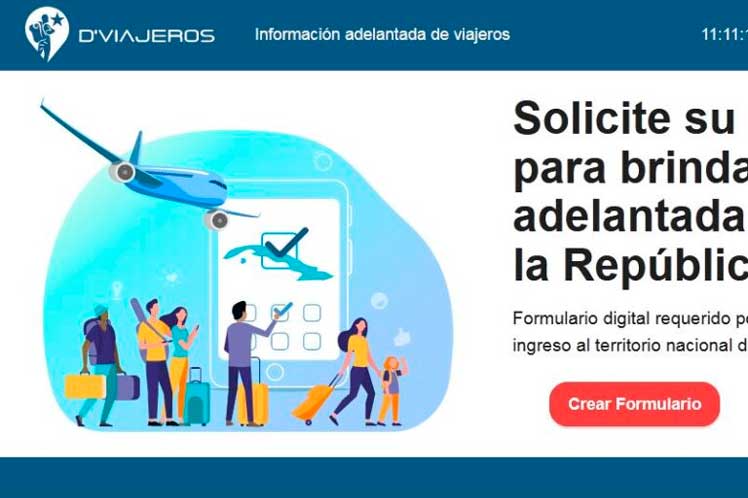
- November 19, 2021
The Ministry of Transport (Mitrans), together with other agencies, made this tool available on the website www.dviajeros.mitrans.gob.cu, with the aim of speeding up procedures at all entry points in Cuba, Granma newspaper reported.
From November 15 to December 31, the use of this electronic form will be enhanced to improve the platform, thus eliminating physical forms.
In order to fill out the document, travelers must have general, migratory, health and customs information and, once completed, it will be sent by e-mail in a PDF format with the QR code that must be shown, either on a device or printed, to the accredited personnel in Cuba, according to the press release.
Mitrans emphasized that it is mandatory for each passenger to truthfully complete the information provided to the Directorate of Identification, Immigration and Foreigners, the General Customs and the Ministry of Public Health.
On the other hand, Cuba suspended as from Monday the quarantine for visitors and the mandatory performance of the Reverse Transcriptase Polymerase Chain Reaction Test (PCR-RT).
Considering the decrease in positive cases, deaths and hospitalizations due to Covid-19 in the last few weeks, the Ministry of Public Health (Minsap) announced the modification of these and other measures established in the current international sanitary control.
jg/etc/mem/nmr
- # Cuba # forms # online
German multinational Volkswagen to implement forced layoffs
- September 2, 2024
Over 400 forest fires in a week in Ecuador
Cuban southeastern region prepares for turnat 2024, el salvador starts september with zero homicides.
| Text SMS to 8100 with content PL Receive 4 mesages x 25 cup
© 2016-2021 Prensa Latina Latin American News Agency
Radio – Publications – Videos – News by the minute. All Rigts Reserved.
St. E No 454 , Vedado, Habana, Cuba. Phones: (+53) 7 838 3496, (+53) 7 838 3497, (+53) 7 838 3498, (+53) 7 838 3499 Prensa Latina © 2021 .
Web Site developed by IT Division Prensa Latina.

Cookies on GOV.UK
We use some essential cookies to make this website work.
We’d like to set additional cookies to understand how you use GOV.UK, remember your settings and improve government services.
We also use cookies set by other sites to help us deliver content from their services.
You have accepted additional cookies. You can change your cookie settings at any time.
You have rejected additional cookies. You can change your cookie settings at any time.
Entry requirements
This information is for people travelling on a full ‘British citizen’ passport from the UK. It is based on the UK government’s understanding of Cuba’s current rules for the most common types of travel.
The authorities in Cuba set and enforce entry rules. If you’re not sure how these requirements apply to you, contact the Cuban Embassy in the UK .
COVID-19 rules
There are no COVID-19 testing or vaccination requirements for travellers entering Cuba.
Passport validity requirements
To enter Cuba, your passport must have an ‘expiry date’ at least 6 months after the date you arrive and 3 months after your planned departure date.
Check with your travel provider that your passport and other travel documents meet requirements. Renew your passport if you need to.
You will be denied entry if you do not have a valid travel document or try to use a passport that has been reported lost or stolen.
Visa requirements
If you’re visiting Cuba as a tourist, you need to get a tourist card before you travel. Apply through the Cuban Embassy in the UK or check with your travel agent or tour operator.
You must also show proof of onward or return travel. See Cuba’s consular services information for details.
For more information and advice about other types of visas, contact the Cuban Embassy in the UK .
Overstaying your visa
The authorities take any breach of immigration rules seriously. You could be detained if you overstay your visa.
Checks at border control
You must complete the arrival form on the D’Viajeros traveller information portal at least 72 hours before you arrive. You’ll get a QR code to show to the authorities on arrival.
Travelling from the USA to Cuba
Under US law, you are not allowed to travel directly from the USA to Cuba for tourism.
There are 12 reasons or categories for which the USA authorities will approve direct travel from the USA to Cuba. For more information see the US Department of the Treasury website , the US State Department’s travel advice for Cuba and the Code of Federal Regulations .
Travelling from Cuba to the USA
You cannot travel from Cuba to the USA without a US visa.
Vaccine requirements
You must have a certificate to prove you’ve had a yellow fever vaccination if you’re coming from a country listed as a transmission risk .
For full details about medical entry requirements and recommended vaccinations, see TravelHealthPro’s Cuba guide .
Customs rules
There are strict rules about goods you can take into and out of Cuba . You must declare anything that may be prohibited or subject to tax or duty.
Art and antiques
Some art and antiques require an export permit from the Country Heritage Office (‘Bienes Culturales’). Ask the vendor if they have the required permit for the item you are buying. At the airport, you may need to show the receipt.
Photography equipment
You may need an import licence for photography equipment, as well as the appropriate journalism visa.
You are not allowed to bring drones into Cuba. They will be confiscated on arrival and not returned until your departure. The process for getting your drone back could be lengthy.
You cannot take meat products, milk, fresh fruit, vegetables, seeds or organic matter into Cuba, with some exceptions .
Electrical items and GPS on mobiles
Some electrical items with heavy power consumption may be confiscated on entry to Cuba.
Global Positioning Systems ( GPS ) are subject to import requirements. Mobile phones, tablets and laptops can be taken to Cuba, but you must turn off any inbuilt GPS .
Complete a customs form if items are confiscated on your arrival so you can collect them on your departure date.
Taking money into Cuba
The Cuban national peso (CUP – ‘moneda nacional’) is the official currency and cannot be exchanged outside of Cuba. Declare foreign currency you’re taking into Cuba if the value is more than 5,000 US dollars.
You must only exchange money at the Cadeca exchange houses. It is illegal to exchange money anywhere else. See Money .
Related content
Is this page useful.
- Yes this page is useful
- No this page is not useful
Help us improve GOV.UK
Don’t include personal or financial information like your National Insurance number or credit card details.
To help us improve GOV.UK, we’d like to know more about your visit today. Please fill in this survey (opens in a new tab) .

Reservations
Manage My Bookings
Airport Check In
Fare Families
Cacique Rewards
Cacique Rewards Log In
Join Cacique Rewards
Earn Cacique Points
travel-information
Passports and Visas
Dangerous Goods
Baggage Essentials
Travel Health
Traveller Information Centre
Travel-tools
Flight Track
Gift Certificates
Payment Options
Air Operations Certificate
Our Aircraft
interCaribbean News
Cacique Magazine
Cacique Magazine Media Pack
CaciqueMagazine.com
Customer Services
Baggage Claim
Charter Requests
Group Requests
Refund Requests

Cuba Entry Requirements
Updated january 16, 2023.
- Documentation: E ffective January 23, 2023 customers traveling to Cuba must fill out the D’Viajeros Online Form before departure. D’Viajeros Portal is available in Spanish and English (and other languages), and includes Traveller General Information, Health Questionnaire, and Immigration & Customs information; all in a 5-step digital form. Once the form is completed, a QR Code will be sent by email in a PDF file, that must show upon arrival in Cuba (on a device or printed). The use of this portal will be mandatory for all passengers traveling to Cuba effective January 23, 2023.
- Tourist Card: Purchase your Tourist Card when you check-in at the airport (available at interCaribbean counter).
- Testing: NO Covid pre-travel test required.
- Vaccination: NO vaccination card nor proof of vaccination required.
- Insurance: Visitors entering Cuba must have health insurance with coverage in the country .
- Health Screening: Health screening may be required upon arrival in Cuba. The International Sanitary Control staff will randomly take a sample for RT-PCR at the airport. All international travelers who arrive in the country and present symptoms of COVID-19 will be referred to a health institution, and a PCR-RT test will be performed.
- Currency: A reminder travellers are Not able to use USD in Cuba. Travelers must carry currencies such as Euros or Canadian Dollars (CAD), among others accepted by the Central Bank of Cuba, to make purchases in Cuba.
21 countries that require a Consular Visa for Tourism in Cuba:
Haiti, Afghanistan, Bangladesh, Cameroon, Eritrea, Ethiopia, Philippines, Ghana, Guinea, Iraq, Iran, Kenya, Nepal, Nigeria, Pakistan, Sierra Leone, Syria, Somalia, Sri Lanka, Yemen, Uzbekistan.
Cuba Civil Aviation has removed India from the list of countries that require a Consular visa for tourism in Cuba.
- Link ‘DViajeros’ Digital Portal : www.dviajeros.mitrans.gob.cu (English / Español )
- D’Viajeros Video
- Check out the Portal Information Brochure (English / Español )
- Cuba Customs and Immigration Information (English / Español )
- Source: Ministry of Public Health website (Spanish / En español)
- Other links: Visit the Ministry of Tourism website (Protocols effective Nov 15, 2021)
Return COVID19 Information Center
- google-plus

Can Americans Travel to Cuba? [2024 Legal Cuba Travel Guide]
I’m an American citizen who travels to Cuba all the time, so “can Americans travel to Cuba?” is one of the questions I’m most frequently asked related to Cuba travel. While many Americans believe that Cuba is still “off-limits” to American citizens, this couldn’t be further from the truth; there are many ways to legally travel to Cuba for American citizens.
Want to travel to Cuba from the United States – as a U.S. citizen or otherwise? Our ultimate guide to Cuba travel for Americans will show you how, answering some of the most common questions about Cuba travel safety , Support for the Cuban People travel , and more.
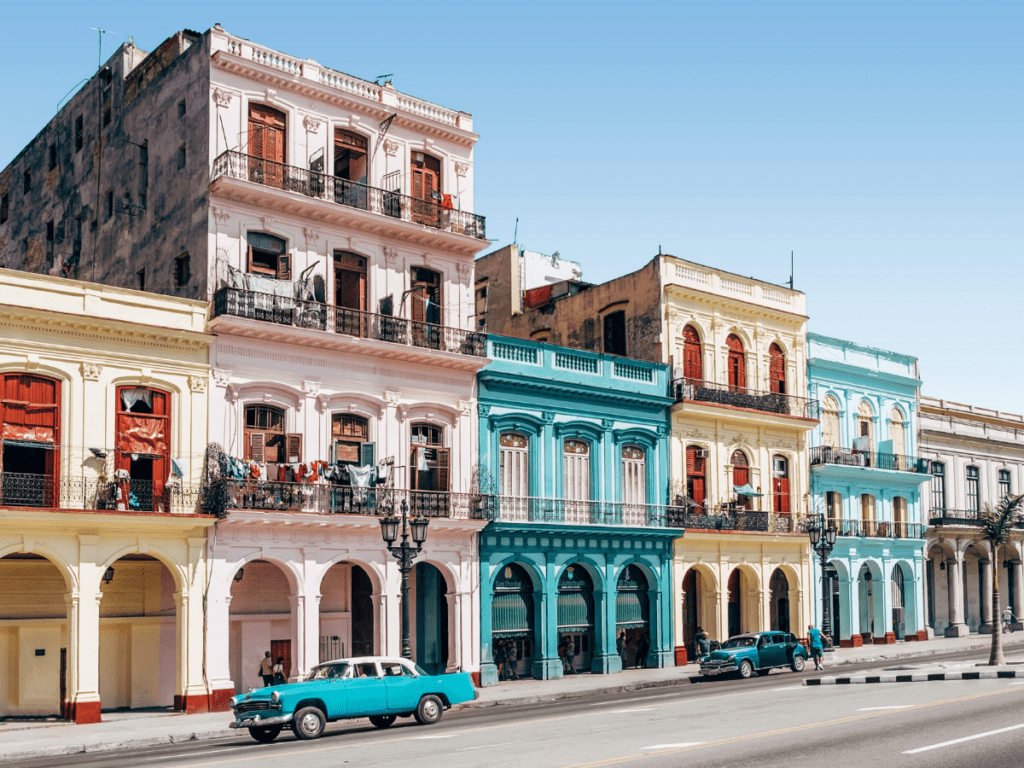
This post contains affiliate links that may reward me monetarily or otherwise when you use them to make qualifying purchases – at no cost to you. As an Amazon Associate, I earn from qualifying purchases. For more information, please read our disclosure policy .
American Travel to Cuba
The short answer to the question “can Americans travel to Cuba” is YES, American citizens can travel to Cuba.
Non-U.S. citizens are allowed to travel to Cuba via the United States as well. American citizens can fly from the United States directly to Cuba, travel independently (no need for a group trip or guided trip here!), and enjoy Cuba just as they would any other travel destination.
The longer answer to the question “can Americans travel to Cuba” is that while legal travel to Cuba is entirely possible and even quite easy, there are some important regulations around American travel to Cuba that travelers should be aware of.
U.S.-Cuba Policy Changes
For years, U.S.-Cuba travel by citizens of the United States has been restricted in many ways. In 2014, President Obama announced a new way forward in the relationship between the United States and Cuba, including lifting many of the travel restrictions that made it quite challenging for U.S. citizens to travel to Cuba.
While the subsequent Trump and Biden administrations have made slight changes to Obama’s new policies, Obama’s new Cuba policies remain mostly intact. Americans can still travel to Cuba more easily than they’ve been able to in decades .
Cuba Travel 101
- Currency in Cuba: A Local’s Guide for Travelers
- How to Get Wifi in Cuba [Updated!]
- Is Cuba Safe? Updated Cuba Safety Guide
- Ultimate Cuba Travel Guide – A Local’s Advice for Travelers
Can Americans Travel to Cuba?
Here’s why so many travelers ask us, “can Americans travel to Cuba?” – because Americans are still not able to legally travel to Cuba purely as “tourists.” Americans must still have a “reason” for traveling to Cuba.
Currently, the U.S. government doesn’t allow American citizens to Cuba as tourists. However, the U.S. government allows American citizens to travel to Cuba so long as they support local, non-government-owned businesses while in Cuba.
Essentially, yes, you can visit Cuba and travel exactly as you would anywhere else. Just avoid government-run hotels, restaurants, and tours while you’re there. This is actually incredibly easy, as all the best things to do in Cuba and the best places to visit in Cuba are local anyway!
So why might it feel like Americans can’t travel to Cuba (when it’s actually quite easy to travel to Cuba)? Americans must give a “reason” for traveling to Cuba – usually when purchasing an airline ticket or booking a hotel room.
How Can Americans Travel to Cuba?
You’ll probably need to check a box when purchasing your airline ticket asking for your “reason” for traveling to Cuba. No need to get nervous; this is easy – by stating that your trip to Cuba is in “ Support for the Cuban People ,” you’re simply acknowledging that while in Cuba, you won’t be staying at government-run hotels and the like.
It’s really that easy. Check a box on a form, and travel to Cuba.
Former President Obama’s policy changes towards travel to Cuba made this possible by creating 12 categories of authorized travel to Cuba , travel that is permitted by the U.S. government for American citizens looking to travel to Cuba. Now it’s as easy as checking a box and booking your airline ticket!
Best Places To Stay in Havana
- Casa Giraldilla ($)
- Casa Flamboyan ($ – $$)
- Residencia Santa Clara ($$)
- El Candil Boutique Hotel ($$ – $$$)
- La Reserva Vedado ($$$)
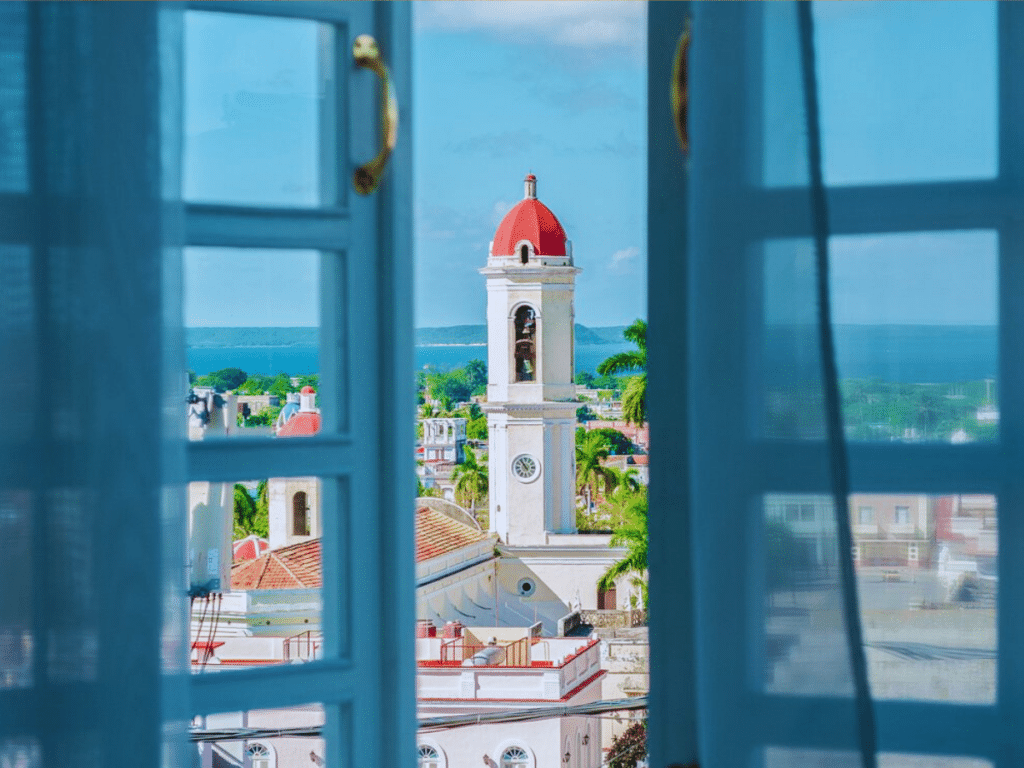
12 Categories of Authorized Travel to Cuba
Now when traveling to Cuba, you simply choose one of these twelve categories of authorized travel to Cuba that applies to your trip. Most travelers’ trips fall under the Support for the Cuban People category of authorized travel, which allows for travel to Cuba so long as it supports local businesses.
These are the Twelve Authorized Categories of travel to Cuba:
- Family visits
- Official business of the U.S. government, foreign governments, and international organizations;
- Journalistic activity;
- Professional research and professional meetings;
- Educational activities;
- Religious activities;
- Public performances, clinics, workshops, athletic and other competitions, and exhibitions;
- Support for the Cuban People ;
- Humanitarian projects;
- Activities of private foundations or research or educational institutes;
- Exportation, importation, or transmission of information or informational materials;
- Certain export transactions.
When you book your airline ticket to Cuba or book your accommodations in Cuba in advance, you may be asked your “reason” for traveling to Cuba. It’s as simple as stating “Support for the Cuban People.”
Read More: Support for the Cuban People Travel Guide
Support for the Cuban People
Most travelers looking to experience Cuba need to only offer “ Support for the Cuban People ” as their “reason” for traveling to Cuba. When you do this, it means you’re saying to the U.S. government that you acknowledge that you’re planning to spend your travel dollars with local, non-government-run businesses while you’re in Cuba – that’s it!
This is stuff that you’d be doing on a trip to Cuba anyway – which is what makes it so easy to travel normally this way.
Stay at a casa particular (room for rent or apartment for rent owned by a Cuban, Airbnb style) or a small boutique hotel, meet up with local guides, eat at any of the innovative new restaurants around the island , or experience Cuba from a local’s eyes. This is all permitted and encouraged on a “Support for the Cuban People” trip.
Travel Insurance
Cuba requires that all travelers have proof of a comprehensive travel insurance policy in order to enter the country. Check out our guide to travel insurance for Cuba for more details. We recommend these brands for Cuba travel insurance:
- Visitors Coverage : Coverage for Cuba travel available to citizens of all countries, though not currently available to residents of New York and Maryland in the United States.
- Insubuy : Coverage for Cuba travel available to citizens of all countries and states of the United States.
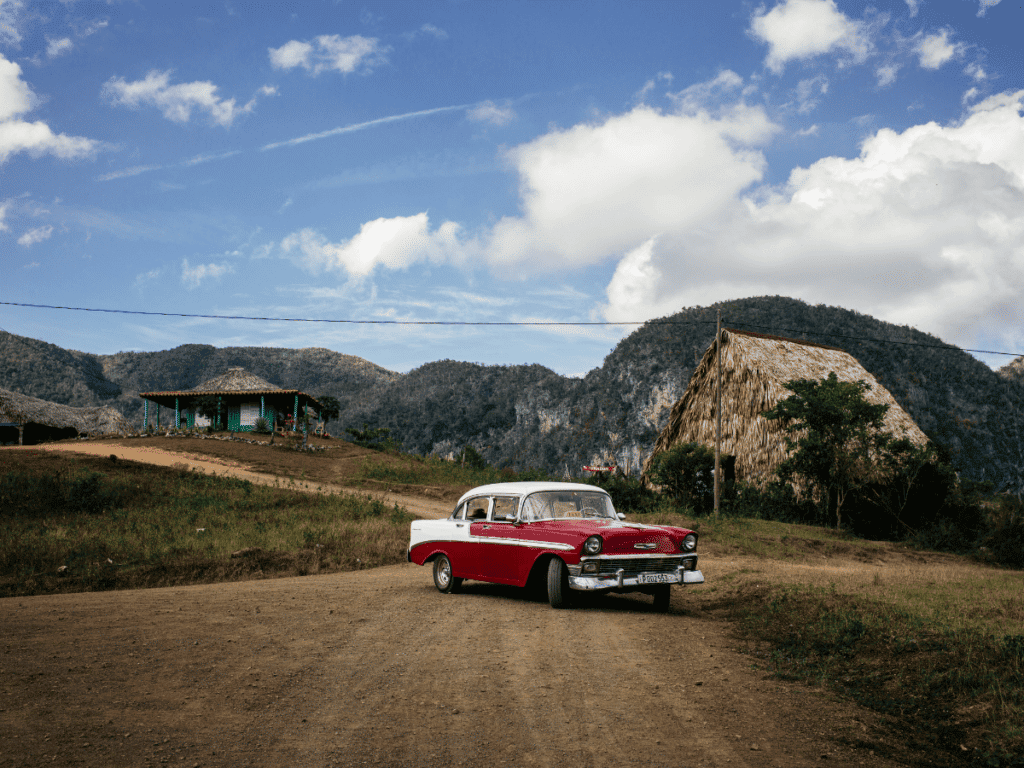
Regulations on American Travel to Cuba
While many continue to ask, “ can Americans travel to Cuba ?” – one of our most frequently asked questions on this website! – the answer is yes, and with these new regulations, it’s easier than ever.
However, keep in mind that some travel regulations put in place by the U.S. government still apply to American travelers visiting Cuba. These include:
- American citizens are no longer able to bring rum or cigars back from Cuba ;
- American citizens are now prohibited (by the U.S. government – not the Cuban government) from staying at a variety of hotels in Cuba ;
- Some methods of traveling to Cuba, such as “ people to people Cuba ” travel organized tours and the ability to travel to Cuba by cruise, have been scaled back or eliminated.
Read on for some of the regulations on travel to Cuba that Americans should be aware of during their trip.
Restricted Hotels in Cuba
One of the newer travel restrictions for Americans traveling to Cuba relates to places where American citizens are not allowed to stay while visiting Cuba. The Trump Administration developed a list of specific hotels and guesthouses that are either partially or entirely owned by the Cuban government and declared them off-limits to American travelers.
Check out the full list here before you book your accommodations in Cuba.
Some newspapers and websites have been incorrectly reporting that Americans are not allowed to stay in any hotel in Cuba, but this is not actually the case. Americans are just prohibited from staying in certain hotels that are owned entirely or partially by the Cuban government.
There are many boutique hotels with private ownership where Americans are still able to stay, plus private rentals called “casas particulares” or private home rentals like Airbnbs. In fact, some of our favorite hotels in Havana and around the country are still open and ready for business for American travelers ( La Reserva Vedado , La Rosa de Ortega , El Candil Boutique Hotel , and plenty of other Old Havana hotels are among our favorites in the capital).
Read More: Accommodation Guides in Cuba
- What is a Casa Particular Guest House in Cuba?
- Where To Stay in Havana, Cuba
- 10+ Best Resorts in Cuba
- 16+ Best Hotels in Cuba
Financial Restrictions in Cuba
It’s very important that American travelers to Cuba be aware of the financial and banking restrictions they will experience while traveling in Cuba. Because of the decades-long U.S. embargo against Cuba, American debit cards and credit cards will not work on the island as they do for those traveling from any other country .
That means that while American citizens can travel to Cuba, they can’t access their money from Cuba. This is quite important, as it means that if plan to travel to Cuba, you need to plan ahead and bring the money you’ll need for your trip with you in cash .
You can bring American dollars and convert them into Cuban pesos once you arrive in Cuba. Please read our complete Cuban currency guide before doing this – you’ll see why it’s not wise to exchange your money for Cuban pesos at the airport, for example, and learn how much money to bring with you on your trip to Cuba.
Read More: Financial Restrictions in Cuba
- The Ultimate Guide to Currency in Cuba
- Budget Your Trip: How Much Money To Plan To Bring to Cuba
Internet Restrictions in Cuba
There are no internet restrictions in Cuba that are specific to American travelers. However, it’s important to be aware of some important internet-related challenges in Cuba.
We get a lot of questions about whether there is internet access in Cuba , and if there is, if it’s safe to use or restricted by the government.
While the internet in Cuba is slower than you may be used to, it is now quite widespread and is pretty easy to use in most places in Cuba. Some websites are blocked in Cuba , and there have even been widespread internet outages during times of social unrest, though these blockages have mostly been of news websites that have been critical of the Cuban government.
However, the United States embargo of Cuba and the related financial and economic restrictions on U.S. companies doing business in Cuba means that some companies can’t offer their services to internet users in Cuba (notably, PayPal and many other banking apps, but the list changes) . You will not be able to access these websites from Cuba.
You can easily get around this if you want by using a VPN (Virtual Private Network) in Cuba . We recommend NordVPN – it’s by far the best VPN to use in Cuba But, even without a VPN, you can still use the internet in Cuba without too much of a hassle.
Read More: How To Use the Internet in Cuba: A Local’s Guide For Travelers
Read More: Internet in Cuba
- Guide to Using the Internet + Getting Wifi in Cuba
- Best VPN For Cuba ( + How to Use a VPN in Cuba)
Packing Restrictions in Cuba
There are some limitations worth noting about what you can bring into Cuba. While most are quite obvious – the usual dangerous substances and the like – there are a few rules for packing for Cuba , both for travelers from the United States and elsewhere :
- Travelers can not bring drones to Cuba
- Travelers can not bring devices like walkie-talkies, satellite phones, or GPS devices. Any personal computers, cell phones, cameras, or any other devices you normally travel with are absolutely fine – no worries here.
- Avoid bringing any literature to Cuba that may be seen as critical of the Cuban government. My brother was once held up in customs for bringing a university textbook with Donald Trump on the cover.
What to Pack for Cuba
Check out our Ultimate Cuba Packing List to help you pack for your trip – we’re sharing exactly what to bring to Cuba and what we never travel without.
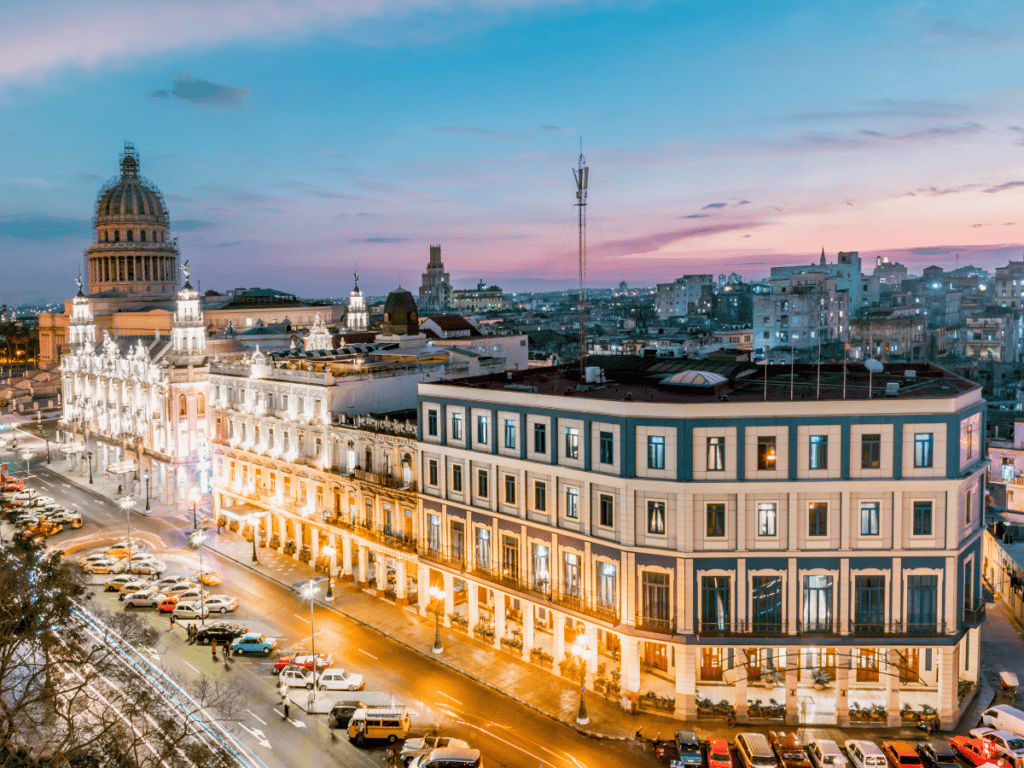
American Travel to Cuba – Frequently Asked Questions
Can americans fly to cuba.
Yes – Americans can fly to Cuba! American citizens can fly to Cuba either from the United States directly or from other countries. Flights to Cuba leave regularly from many of America’s largest cities like Miami, Ft. Lauderdale, Atlanta, and New York.
We frequently get the “can Americans fly to Cuba?” question because when travel to Cuba was more restricted, many Americans used to fly to Cuba through Canada or Mexico as a way to skirt travel restrictions .
However, flying to Cuba via another country like Mexico or Canada is no longer a necessity. Obama’s Cuba policy changes allowed many more American citizens to travel to Cuba much more easily, kicking off many more flights to Cuba from the United States.
Do Americans Have to Travel to Cuba With A Group?
One of the most popular ways to travel to Cuba prior to the Cuba travel policy changes of former President Obama was with a “people-to-people” group or as part of an educational tour. However, with the ease of traveling to Cuba from the United States now, these group travel to Cuba experiences are no longer a necessity to visit the island.
While there are groups that travel to Cuba and tout the ease of traveling to Cuba by purchasing a spot on a group trip doing so, it isn’t necessary to travel to Cuba with a group . Feel free to travel to Cuba with a group if this is your preferred style of travel – or plan your trip to Cuba independently, too!
Looking for some engaging tours in Cuba, ways to meet up with local guides, or fun activities and excursions in Cuba? We recommend Civitatis , a fantastic company we’ve used countless times before that runs tours with local guides all around Cuba.
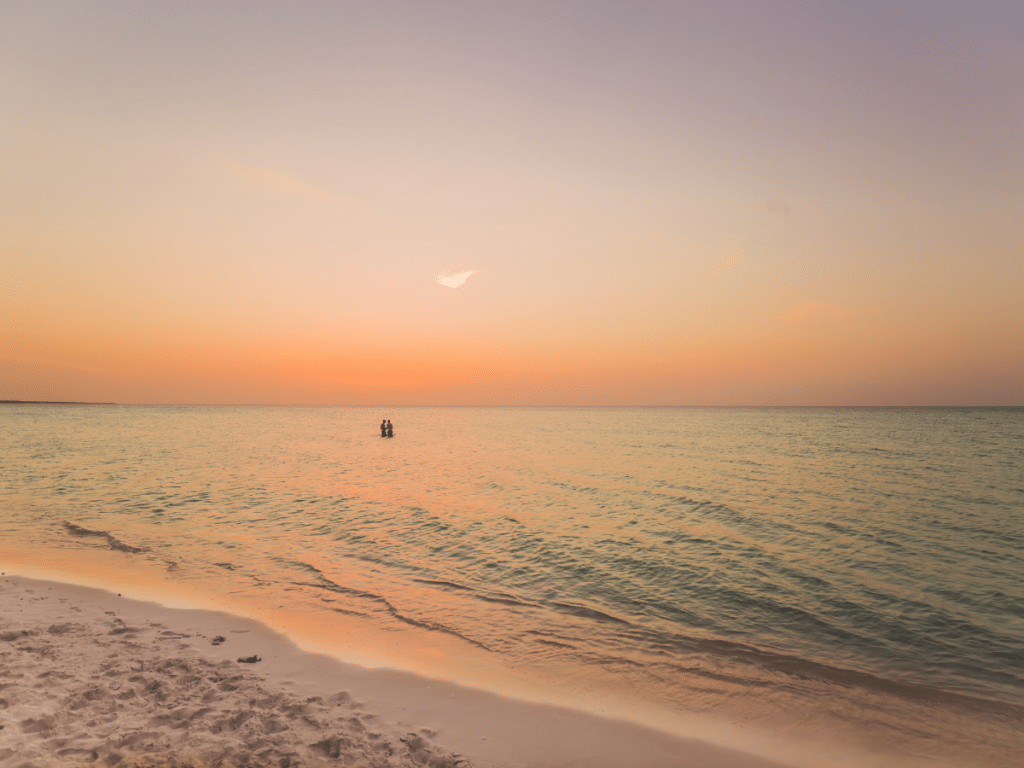
Is Cuba Safe for Americans?
While Cuba isn’t crime free, Cuba is a safe travel destination for all travelers, including American travelers. Statistics prove Cuba is quite a safe destination for travelers, and my own experience exploring Cuba, even as a solo female traveler, confirms it.
In all my years of visiting Cuba, I’ve never been met with anything other than curiosity when people leave I’m from the United States. While many Cubans disapprove of the government of the United States, I’ve never met a single Cuban who holds this against the average American citizen.
Overall, Cuba is safe for Americans , and as a traveler, you have absolutely nothing to fear while visiting.
Read More: Is Cuba Safe for Americans?
Travel Essential
Don’t think about traveling to Cuba without a good VPN (Virtual Private Network) . Using a VPN while connecting to the internet is an easy way to keep your personal information safe from hackers and trackers. We’ve used NordVPN for years and couldn’t recommend it more – it’s a must for safety online, especially in Cuba.
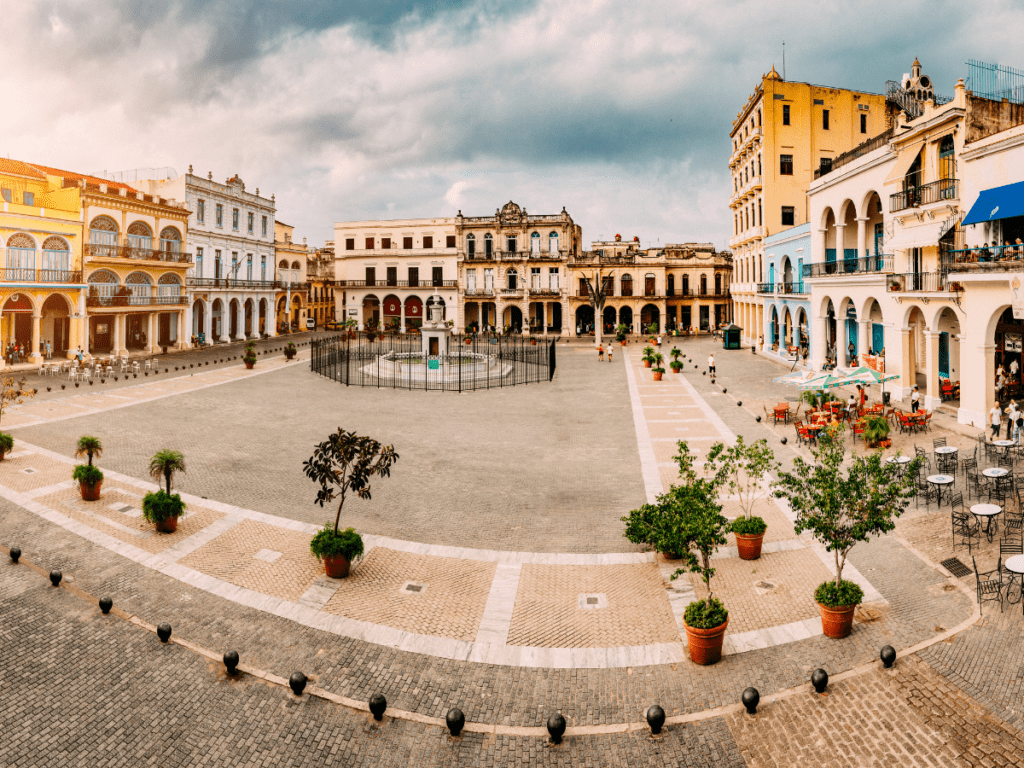
American Embassy in Cuba
Part of the policy changes of former President Obama in 2014 paved the way for reopening the United States Embassy in Cuba after nearly 60 years of closure. The American Embassy in Cuba offers emergency services to American citizens traveling in Cuba, including assistance with lost passports, registering births abroad, and more.
Located prominently along the Malecón sea wall in central Havana, the American Embassy in Cuba is currently providing services to American citizens and has just started providing limited services to Cuban citizens seeking visas to the United States.
As a U.S. traveler to Cuba, you should save the address and contact information for the embassy just in case you need it:
U.S. Embassy Havana Malecón, Calzada between L & M, Vedado Havana, Cuba Phone: (53)(7) 839-4100
Travel to Cuba
There are so many things to do in Cuba – much more than laying on the beach and riding in old, classic American cars.
Anything from taking a guided tour of Havana to eating at a restaurant operated as a small business or taking salsa classes are ways to enjoy Cuba. And guess what – all of these things are perfectly legal – and welcome! – when you travel to Cuba as part of a Support for the Cuban People trip.
For more travel ideas, we put together a guide to the top ten activities in Cuba for a Support for the Cuban People trip with our favorite ideas for a fantastic trip! Go ahead – get started planning your once-in-a-lifetime trip to Cuba! As always, we’ll be here to help you get started.

Carley Rojas Avila
Carley Rojas Avila is a bilingual travel writer, editor, content marketer, and the founder of the digital travel publications Home to Havana and Explorers Away. She is a serial expat and traveler, having visited 40+ countries and counting. Carley has written for publications like Travel + Leisure, MSN, Associated Press, Weather Channel, Wealth of Geeks, and more. Find her front row at a Bad Bunny concert, befriending street cats, and taste-testing every pizza in Havana.

- How to Fill Out the Cuba Visa Tourist Card - Tarjeta del Turista
Filling Out a Cuba Visa Tourist Card - Tarjeta del Turista
If you have a trip to Cuba coming up, you are likely gathering all the documents you need to enter the country seamlessly. Travelers to Cuba require a visa, also known as a Cuban Tourist Card. If you are flying from the USA, the U.S. air carrier will have these visas available for sale in the boarding area, at a price ranging from $50-$100. It’s also legal to fly through another country like Canada or Mexico. In that case you can also obtain the visas at the airport. For your convenience, Cuba Unbound is also able to provide these for a fee.
Below is a photo of the “Visa – Tarjeta del Turista.” Read this carefully because if you make a mistake, you will have to purchase another visa.
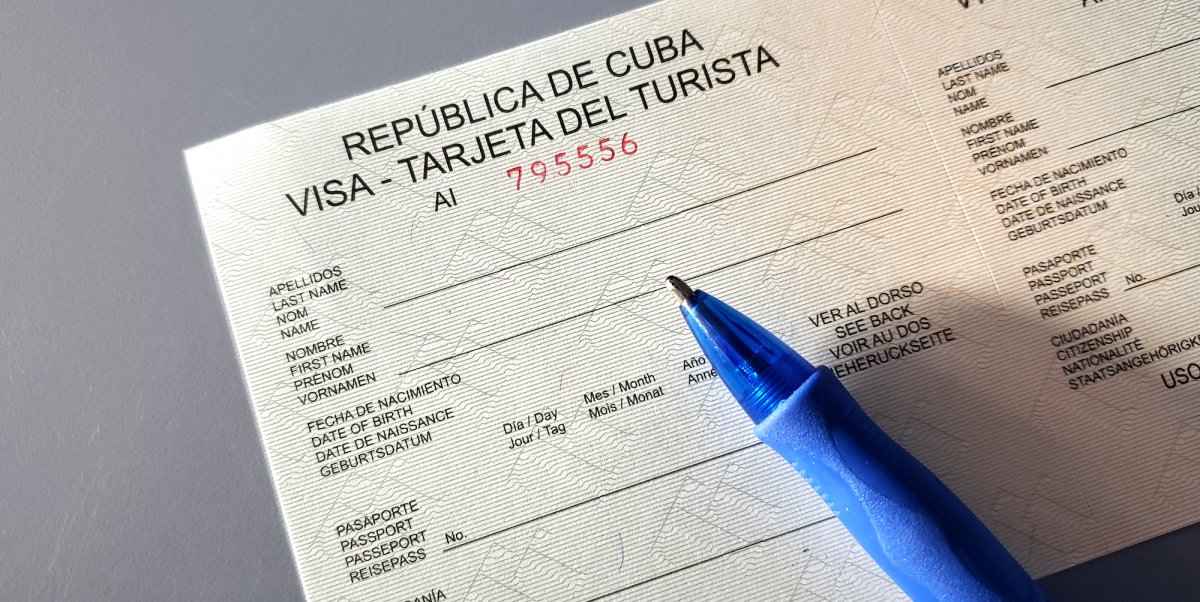
A step by step guide to filling out a Cuban tourist visa card - Tarjeta del Turista:
*Please note that you will need this tourist visa to enter and leave Cuba.
Fill out your last name on the first line.
Fill out your first name on the second line.
Fill in the requested information such as date of birth above the indicated space for day, month, and year.
Fill in your passport number
For citizenship, citizens of the United States should just put “USA”
*Note: If you make a mistake on the left side, and it is minor, just repeat in the same on the right side.
On the back you will see a stamp from ROW Sea Kayak Adventures. This is our company that has an agreement with the Consulate of Cuba to purchase these tourist cards.
Full List of Cuba Entry Requirements
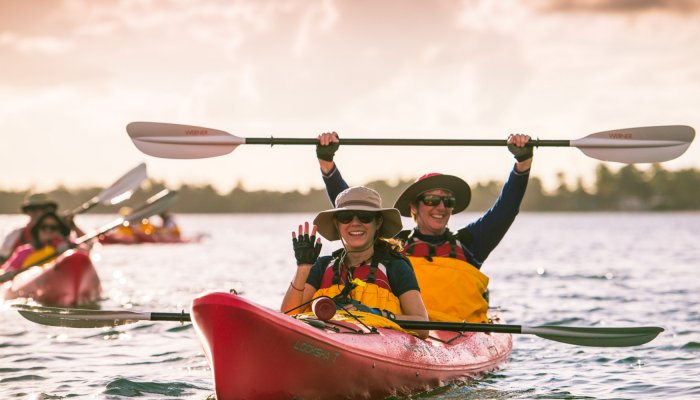
Cuba Unbound - Signature Tour

Cuba Walking Tour
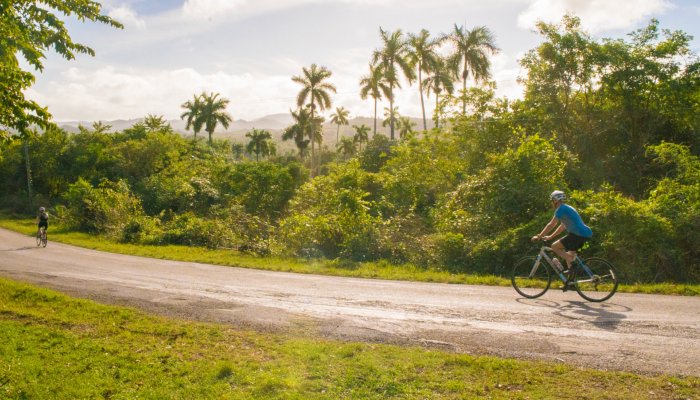
Central Cuba Bike Tour
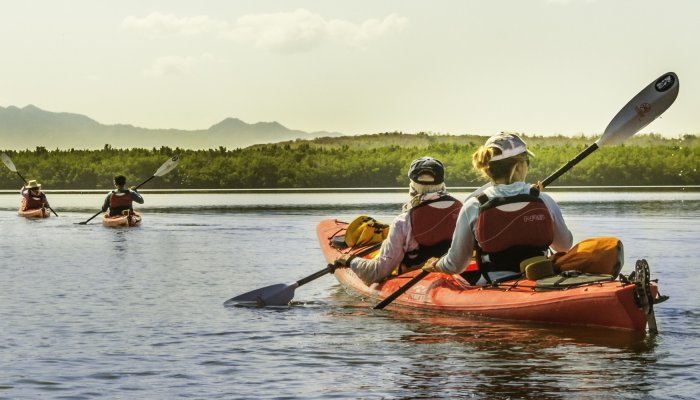
Cuba Multisport Tour

Yes, Americans Can Still Travel to Cuba. Here’s How
Is it legal for u.s. citizens to travel to cuba what types of travel can they take and what are cuba tourist cards here’s what you need to know about visiting cuba..
- Copy Link copied

Havana, Cuba’s capital city, is known for its vintage cars and historic architecture.
Courtesy of Spencer Everett/Unsplash
Cuba is a beautiful Caribbean island with a complex history and rich culture. But for decades, it’s been just beyond the reach of many Americans. In addition to several difficult years involving devastating hurricanes, pandemic-era travel restrictions, ever-changing U.S. State Department travel advisories, and frequently updated trade and tourism regulations , it’s not surprising that many Americans may be confused about whether and how U.S. travelers can legally visit Cuba .
As of early 2024, the short answer is: Yes, you can travel to Cuba as a U.S. citizen. There are, however, some hoops you’ll need to jump through, because (technically speaking) travel to Cuba for pure vacationing isn’t allowed. For U.S. citizens interested in planning a trip to Cuba, here’s what you need to know before you go.
Can you travel to Cuba?
The relationship between the United States and Cuba has been tumultuous, to say the least. Following the Cuban Revolution during the 1950s and the subsequent rise of Fidel Castro’s regime, diplomatic ties between the two nations deteriorated rapidly. In 1960, the United States imposed a trade embargo on Cuba, effectively severing most economic and political connections.
In the time since, travel between the two countries has been heavily restricted by the U.S. government, which has implemented various policies to discourage or prohibit its citizens from visiting Cuba. Making matters more complex, those policies often changed with each presidential administration. The island nation was more accessible during the Carter, Clinton, and Obama years and more closed off during the G.W. Bush and Trump years.
In 2014, it became significantly easier for Americans to visit Cuba after President Obama announced a series of measures aimed at normalizing diplomatic ties and loosening travel restrictions to allow Americans to visit for certain purposes (more on that later). Additionally, in 2016, commercial flights between the United States and Cuba resumed for the first time in more than half a century.
However, the Trump administration made it significantly harder to visit Cuba. During his time in office, President Trump enacted more than 200 measures against Cuba , which included limiting what Cuban airports flights from the U.S. could fly into, banning cruises from stopping in Cuba, and eliminating the most common visa category under which U.S. citizens planned legal visits to Cuba (known as “people-to-people” travel).
Then in May 2022, President Biden’s administration announced it would undo many of the Cuba-related restrictions enacted under Trump and would work on expanding authorized travel. Under the new order, regular passenger and charter airplanes are again allowed to fly to any Cuban airport (and airlines announced new flight paths ). And officials said that the “people-to-people” category of travel, under which many tours and organized travel companies bring U.S. travelers to Cuba, will ultimately return, though there is no timeline on when that will happen.

Cuba’s music scene is also a big draw.
Photo by Shutterstock
How to travel to Cuba as an American citizen
U.S. law states that those who want to go to Cuba need to qualify for a “general license” based on one of 12 approved categories.
The 12 categories currently authorized by U.S. government, for travel to Cuba are:
- Family visits
- Official business of the U.S. government, foreign governments, and certain intergovernmental organizations
- Journalistic activity
- Professional research and professional meetings
- Educational activities
- Religious activities
- Public performances, clinics, workshops, athletic and other competitions, and exhibitions
- Support for the Cuban people
- Humanitarian projects
- Activities of private foundations or research or educational institutes
- Exportation, importation, or transmission of information or informational materials
- Certain authorized export transactions
Licenses are self-qualifying, meaning that when you purchase your airline ticket, you’ll be asked to state your category in a signed affidavit before checkout.
When former President Obama first eased travel restrictions to Cuba , the move allowed leisure travelers to pursue self-led trips under the “people-to-people” educational activities category. Today, the “support for the Cuban people” category is the most popular because it’s the broadest.
What the “support for the Cuban people” license entails
To adhere to the requirements for independent travel under “support for the Cuban people,” travelers must first declare the category (when prompted) while booking flights and lodging. As part of the license, travelers are also expected to prepare an itinerary outlining how their trip will fulfill the category’s terms and contribute to Cuba’s local economy. (This itinerary could be—but isn’t always—requested on arrival to the country.)
An appropriate “support for the Cuban people” itinerary could including staying in casa particulares (locally run guesthouses), visiting Cuban-owned businesses, going on tours (like classic car rides or architecture walking tours) run by Cubans, visiting independent museums and galleries, partaking in cultural dance and music classes, and eating at locally owned restaurants and markets. (For specific recommendations and local resources, check out AFAR’s Cuba Travel Guide .)
Travelers can visit independently under that category, though it’s important you keep a record of your itinerary and your receipts: The U.S. government can ask for them up to five years after the trip.
Can you still travel to Cuba with organized tour operators?
Even though the Trump administration’s tightened restrictions on travel to Cuba prohibited organized “people-to-people” tours entirely, many tour companies have switched their approach to adhere to the “support for the Cuban people” license, according to Tom Popper, president of U.S.-based tour operator InsightCuba . Other tour providers that offer “people-to-people” trips, such as GeoEx Adventure Travel , Flash Pack , Intrepid Travel, and G Adventures, have similarly transitioned their program itineraries in order to offer legal trips to Cuba that comply with the regulations.
Challenges and considerations for travel to Cuba
Despite the easing of restrictions, traveling to Cuba as an American still presents some challenges. For example, there are limited banking services available to U.S. visitors, and American credit and debit cards are not typically accepted (as noted on the website for the U.S. embassy in Cuba ), so it’s important to bring plenty of cash. Similarly, internet access in Cuba is limited —expect connections to be patchy .
How to get a Cuba Tourist Card

The terms Cuba Tourist Cards and Cuban visas are sometimes used interchangeably.
Courtesy of Easy Tourist Card
Regardless of the license under which you travel to Cuba, you’ll still need to organize a few important documents before you go.
The Cuban government requires that all travelers entering the country provide a valid passport and proof of travel insurance that covers medical emergencies and evacuation by air. In addition, all U.S. travelers—adults, children, and infants—must purchase a Cuba Tourist Card , which grants visitors a maximum stay of 30 days on the island. Tourist Cards are valid for 180 days after purchase, which means you will need to travel within six months of obtaining the document. Note that the terms Cuba Tourist Card and Cuban visa are sometimes used interchangeably; they’re the same thing.
There are several ways to buy a Cuba Tourist Card: Many U.S. airlines with direct service to Havana—among them United Airlines , JetBlue , American Airlines , Delta , and Southwest —offer Tourist Cards either online or at the gate; prices and purchase locations vary among carriers, so it’s important to check in advance.
Websites like Easy Tourist Card allow travelers to apply for and purchase Tourist Cards online with two-day international shipping. Those who plan to fly to Havana directly from the United States will need to purchase a pink Tourist Card at a rate of $100, while those departing from non-U.S. airports can purchase a green Tourist Card for $37, even with a U.S. passport.
“U.S. travelers should note that travel to Cuba has been regulated since 1963 and has changed under each presidential administration since that time,” states Popper of InsightCuba. “Cuba travel has always been a hot political topic, and you never know when the rules are going to change. I always tell people to go now—while you can.”
This article was originally published in 2018. It was most recently updated on March 21, 2024, to include current information.
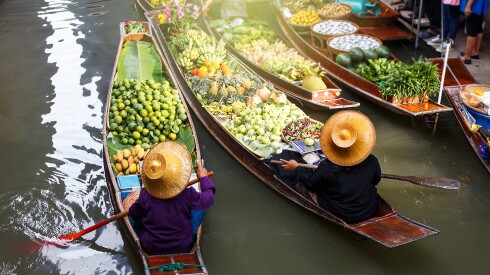
Enable JavaScript
Please enable JavaScript to fully experience this site. How to enable JavaScript
Travel to Cuba
U.s. to cuba travel policy.
Flying to Cuba from or through the U.S. for tourism is not allowed. There are 13 permitted reasons for travel:
- Family visits
- Official business of the U.S. government, foreign governments and certain intergovernmental organizations
- Journalistic activities
- Professional research or professional meetings
- Educational academic activities
- People-to-people exchanges (for travel related transactions purchased prior to June 5, 2019)
- Religious activities
- Public performance, clinics, workshops, athletic or other competitions and exhibitions
- Support for the Cuban people
- Humanitarian projects
- Activities of private foundations or research or educational institutes
- Exportation, importation, or transmission of information or informational materials
- Travel related to certain authorized export transactions
Federal regulations on travel to Cuba Opens another site in a new window that may not meet accessibility guidelines
If you aren't traveling for one of the 13 reasons, there are 2 other ways to enter Cuba:
- With a license issued by the U.S. Office of Foreign Assets Control (OFAC)
- As a Cuban National returning home
Apply for an OFAC license Opens another site in a new window that may not meet accessibility guidelines
If you don't qualify for one of the 13 permitted reasons, have an OFAC license or identify as a Cuban national returning home, you will not be permitted to travel to Cuba.
Additional travel requirements
Everyone entering Cuba must have a visa and health insurance with coverage in the area. For insurance, a $25 fee is added to your ticket price.
Special visa requirements apply to Cuban-born travelers, regardless of citizenship.
Preparing for travel
What to bring.
- Valid passport
- Valid visa, travel card or Cuban passport
You can buy a travel card online or at Miami (MIA) before departure.
Buy travel card Opens another site in a new window that may not meet accessibility guidelines
Few U.S.-issued cards are accepted in Cuba and service isn't guaranteed. Contact your bank before traveling.
Online check-in for flights to Cuba is unavailable. You must check in at the airport to provide reason for travel – allow up to 3 hours to complete the process. If you're flying from Miami (MIA), look for the 'Cuba Ready' booth by Checkpoints 1 and 2 to check your documents and get your boarding pass stamp.
Changes to bag limitations for checked bags have been updated as of March 14, 2023. Bag fees may apply for checked bags.
- Checked bag policy
- Bag limitations
Connections
When you get to the gate at your connecting airport, look for the 'Cuba Ready' booth to check your documents and get your boarding pass stamp.

IMAGES
VIDEO
COMMENTS
DVIAJEROS facilita y mejora la experiencia de los viajeros en su tránsito por la República de Cuba. DVIAJEROS facilita y mejora la experiencia de los viajeros en su tránsito por la República de Cuba. Información adelantada de viajeros. 05:43:59 AM Hora local de Cuba . Español . English . 中文 . Русский .
Getting ready to travel to Cuba? Make sure you follow our steps to complete the D'Viajeros travel form before you travel. The form must be completed and shown at the airport before and after travelling to the island and requires passengers to input data such as their passport information, travel plans, and customs declarations.
Beginning in 2023, Cuba launched a new form for travelers to complete before arriving in the country, known as the D'Viajeros Travel form. Covering a range of topics including basic personal information and customs information, the D'Viajeros form is an important but relatively straightforward Cuba entry requirement that travelers will need to complete before arriving in Cuba.
Individuals who meet the regulatory conditions of the general license they seek to travel under do not need to apply for an additional license from OFAC to travel to Cuba. The 12 categories of authorized travel to Cuba are: family visits; official business of the U.S. government, foreign governments, and certain intergovernmental organizations ...
Next step critical to get your QR Code. Print this PDF. Put with your passport. Save to your phone. QR Code required for US airlines and entry into Cuba. With this PDF QR Code document in hand, together with your passport, and Cuban Tourist Visa, you are ready to visit Cuba. Remember, you can only complete the D'Viajeros online entry form 48 ...
In order to enter Cuba, you must complete the D'Viajeros Advance Information of Travelers Form. This can only be completed once you are within 48 hours from departure to Cuba. This is a simple form that asks some health questions as well as including the customs declaration form. You must fill this out before you leave home but not sooner than ...
In the 48 hours before you travel to Cuba you'll need to complete the D'Viajeros Form, an online form, issued by the Cuban Government. It's a relatively simple form, but it's a requirement for traveling to Cuba. It includes personal information, and customs information and must be completed by all travelers, regardless of nationalities ...
One essential form that travelers must complete is the Cuba d'Viajeros Travel Form. This step-by-step guide will walk you through the process o Embarking on a trip to Cuba can be an exciting adventure, but it's important to ensure all the necessary paperwork is in order to ensure a seamless journey.
Airlines require you to show this code before you are allowed to board your flight to Cuba. Here are step-by-step instructions to help you fill out the D'Viajeros travel forms and obtain the QR code that you need to enter Cuba. Step 1: Accessing the D'Viajeros form . Cuba's customs and immigration forms are on the D'Viajeros website ...
Travel insurance with medical coverage. Traveler's Health Declaration. Round-trip airline ticket. QR code of the digital form; Passport and Visa . Find out here what you need to travel to Cuba and the types of visa according to the period of your stay and how to obtain it, as well as the modalities of visa application.
Since 2021, Cuba has required filling out its landing form and health form online. You can access the form here: https://dviajeros.mitrans.gob.cu/inicioIn or...
The Cuba Entry Form, known as the Cuba D'Viajeros, is a mandatory travel document for Cuba. All passengers must complete the form before entering, including Cuban citizens and residents. The Cuba declaration form collects key information about you and your trip, including personal and passport data, travel details, and a customs declaration.
For most European citizens, a valid passport is required during your stay in Cuba. Some countries, like Spain, require the passport to be valid for at least 6 months. It's also important to note that if you plan to travel to the United States after visiting Cuba, you'll need a visa. This is because the electronic system for travel authorization ...
The new Cuba advance passenger information form, known as D'VIAJEROS, has been live since Monday, January 23rd. Unlike the US ESTA (which is only for those eligible for visa-free travel), the Cuban form is mandatory for each passenger and is intended to speed up procedures at points of entry. The form is free of charge to complete.
The digital form must be compulsorily completed by all travelers who wish to travel to Cuba with a maximum of 48 hours before the flight check-in, obtaining as a result a QR code, which must be presented in digital or printed format to the representation of the airline. Benefits of the digital form: - Facilitates and improves the experience of ...
Call us in Washington, D.C. at 1-888-407-4747 (toll-free in the United States and Canada) or 1-202-501-4444 (from all other countries) from 8:00 a.m. to 8:00 p.m., Eastern Standard Time, Monday through Friday (except U.S. federal holidays). See the State Department's travel website for the Worldwide Caution and Travel Advisories.
Havana, Nov 19 (Prensa Latina) Cuba made available the D'Viajeros application for visitors arriving in the country as of next January 1 to fill out online the corresponding form with general ...
To enter Cuba, your passport must have an 'expiry date' at least 6 months after the date you arrive and 3 months after your planned departure date. Check with your travel provider that your ...
Cuba Entry Requirements for U.S. Travelers. U.S. travelers don't have any additional entry requirements for Cuba. Travelers from the United States need to have a valid passport, Cuban tourist visa, comprehensive travel insurance for Cuba, and a completed D'Viajeros Travel Form, just as any other travel would.
Updated January 16, 2023. Documentation: Effective January 23, 2023 customers traveling to Cuba must fill out the D'Viajeros Online Form before departure. D'Viajeros Portal is available in Spanish and English (and other languages), and includes Traveller General Information, Health Questionnaire, and Immigration & Customs information; all in a 5-step digital form.
Check a box on a form, and travel to Cuba. Former President Obama's policy changes towards travel to Cuba made this possible by creating 12 categories of authorized travel to Cuba, travel that is permitted by the U.S. government for American citizens looking to travel to Cuba. Now it's as easy as checking a box and booking your airline ticket!
Travelers to Cuba require a visa, also known as a Cuban Tourist Card. If you are flying from the USA, the U.S. air carrier will have these visas available for sale in the boarding area, at a price ranging from $50-$100. It's also legal to fly through another country like Canada or Mexico. In that case you can also obtain the visas at the airport.
U.S. law states that those who want to go to Cuba need to qualify for a "general license" based on one of 12 approved categories. The 12 categories currently authorized by U.S. government, for travel to Cuba are: Family visits. Official business of the U.S. government, foreign governments, and certain intergovernmental organizations.
Flying to Cuba from or through the U.S. for tourism is not allowed. There are 13 permitted reasons for travel: Federal regulations on travel to Cuba. If you aren't traveling for one of the 13 reasons, there are 2 other ways to enter Cuba: Apply for an OFAC license.